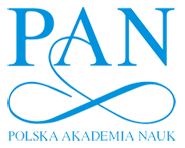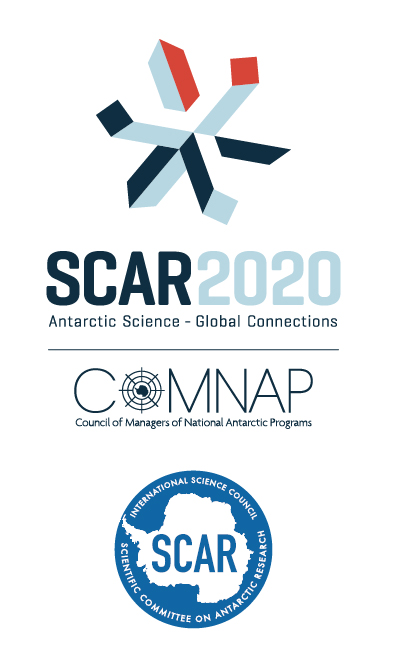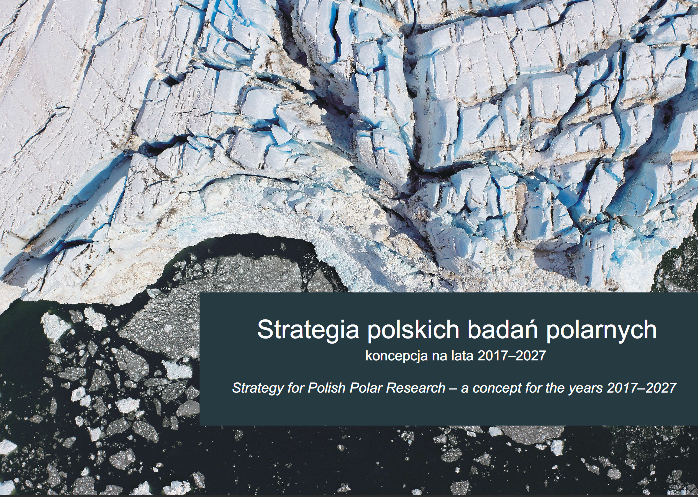Uncategorised
Organizacje międzynarodowe
- Details
KBP jest komitetem narodowym dla 6 międzynarodowych organizacji naukowych:
- International Permafrost Association (IPA)
Międzynarodowe Stowarzyszenie Zmarzlinoznawstwa
Koordynator krajowy: prof. dr hab. Rajmund Przybylak
Misją IPA jest wspieranie i promowanie badań nad wieloletnią zmarzliną oraz dziedzinami pokrewnymi w ramach międzynarodowych środowisk naukowych i inżynieryjnych. IPA aktywnie wspiera pracę badaczy zajmujących się tym obszarem oraz dąży do upowszechniania wiedzy o zmarzlinie wśród decydentów, nauczycieli i szerokiej opinii publicznej. Stałe i aktywne uczestnictwo Polski w pracach IPA i udział w towarzyszącym im konferencjach pozwala na zapoznanie się z aktualnym stanem badań dotyczących permafrostu na świecie.
- International Arctic Science Committee (IASC)
Międzynarodowy Komitet Badań Arktycznych
Koordynator krajowy: prof. dr hab. Monika Kędra
IASC jest pozarządową międzynarodową organizacją naukową. IASC wspiera i ułatwia współpracę we wszystkich dziedzinach badań arktycznych — zarówno między krajami prowadzącymi badania w Arktyce, jak i we wszystkich regionach tego obszaru. Celem IASC jest promowanie i wspieranie nowatorskich, interdyscyplinarnych badań naukowych, które przyczyniają się do pogłębienia wiedzy o Arktyce oraz zrozumienia jej roli w systemie Ziemi. Polska jest członkiem IASC od 1991 r. Członkostwo Polski w IASC umożliwia jej wpływ na światową naukową politykę i plany naukowe w Arktyce oraz pozwala na udział w inicjatywach powoływania wielkich badawczych programów międzynarodowych.
- Scientific Committee on Antarctic Research (SCAR)
Komitet Naukowy Badań Antarktycznych
Koordynator krajowy: dr hab. Robert Bialik
SCAR jest organizacją pozarządową należącą do ICSU (International Council for Science). Polska została przyjęta do SCAR jako 13 państwo w 1978 r. (obecnie - 46 państw). Polska posiada dwie aktualnie czynne stacje naukowe w Antarktyce tj. całoroczną Polską Stację Antarktyczną im. Henryka Arctowski (Instytut Biochemii i Biofizyki PAN) oraz sezonową Polską Stację Polarną im. B. Dobrowolskiego (Instytut Geofizyki PAN), stąd udział Polski w SCAR jest niezbędny. Stacje są wykorzystywane przez naukowców z Polski, jak również z zagranicy. Prowadzone są na nich badania w zakresie ekologii, geologii, glacjologii, mikrobiologii, czy oceanografii. Członkostwo w SCAR oraz uczestnictwo w spotkaniu delegatów SCAR stwarza możliwości polskim naukowcom wpływania na światową politykę naukową w badaniach Antarktyki. - Council of Managers of National Antarctic Programs (COMNAP)
Rada Menadżerów Narodowych Programów Antarktycznych
Koordynator krajowy: mgr Agnieszka Kruszewska
COMNAP jest drugą po ATCM (Układzie Antarktycznym) najważniejszą organizacją skupiającą 30 państw zaangażowanych w badania antarktyczne, posiadających stałe stacje badawcze i/lub narodowe programy badań antarktycznych. Polska jako posiadacz i operator całorocznej stacji naukowej oraz organizator corocznych wypraw naukowych, jest zobowiązana do aktywnego uczestnictwa w pracach oraz spotkaniach konsultacyjnych tej organizacji, na których ustala się m.in. międzynarodowe zasady zarządzania terenami o szczególnych wartościach przyrodniczych: ASMA (Antarctic Specially Managed Area), ASPA (Antarctic Specially Protected Area) oraz zasady wymiany informacji pomiędzy stacjami i państwami. COMNAP skupia przedstawicieli poszczególnych państw w wielu grupach roboczych zajmujących się m.in. sprawami zaopatrzenia stacji, transportu członków wypraw oraz sprzętu drogą lotniczą i morską, minimalizacji ingerencji działalności ludzkiej na środowisko naturalne, ochrony zasobów żywych i środowiska, zabezpieczenia medycznego, koordynacji akcji ratunkowych i wzajemnej pomocy pomiędzy stacjami, a także rekrutacją członków wypraw, wymianą informacji poprzez sieć, tworzeniem antarktycznych baz danych, regulacją ruchu turystycznego.
- Forum of Arctic Research Operators (FARO)
Forum Operatorów Badań Arktycznych
Koordynator krajowy: dr Dariusz Ignatiuk
FARO to międzynarodowa organizacja zrzeszająca państwa, która wspiera dialog dotyczący logistyki i wsparcia operacyjnego dla badań naukowych prowadzonych w Arktyce. FARO sprzyja wymianie informacji, nawiązywaniu współpracy oraz rozwijaniu nowych inicjatyw pomiędzy narodowymi operatorami statków, stacji badawczych i statków powietrznych działających w regionie Arktyki. Dzięki temu umożliwia państwom skuteczniejsze planowanie i optymalizację logistyki oraz zaplecza operacyjnego dla działalności badawczej w tym obszarze.
Współpraca Polski z FARO skupia się na koordynacji i współdziałaniu polskiego środowiska naukowego posiadającego infrastrukturę w Arktyce (stacje polarne, statki badawcze i samoloty). Polski potencjał badawczy w tym zakresie stanowią: wykorzystywana całorocznie Polska Stacja Polarna im. Stanisława Siedleckiego Hornsund oraz wykorzystywane w sezonie wiosennym i letnim stacje polskich uniwersytetów tj. Stacja im. Stanisława Baranowskiego Uniwersytetu Wrocławskiego przy Lodowcu Werenskiolda, Stacja Uniwersytetu Mikołaja Kopernika na Koffioyra oraz Stacja Uniwersytetu Adama Mickiewicza w Petuniabukta na Spitsbergenie. Ponadto w okresie lata arktycznego na Morzu Grenlandzkim i Morzu Barentsa operują dwa statki: badawczy OCEANIA z Instytutu Oceanologii PAN w Sopocie oraz szkolno-badawczy HORYZONT II Akademii Morskiej w Gdyni.
- European Polar Board (EPB)
Europejska Rada Polarna
Koordynator krajowy: prof. dr hab. Jacek Jania
EPB stanowi jedyną pan-europejską organizację skupiającą wiodące narodowe instytucje naukowe i agencje finansujące badania w Arktyce i Antarktyce. Pełni rolę inicjującą oraz koordynującą europejską współpracę w badaniach polarnych, a w szczególności wpływa na kształtowanie kierunków polityki naukowej Unii Europejskiej, a także państw europejskich należących do Rady. Polska Akademia Nauk jest członkiem EPB od jej utworzenia w 1995 r.
rok 2021
- Details
Wystawa zdjęć „Barwy Arktyki - Spitsbergen”
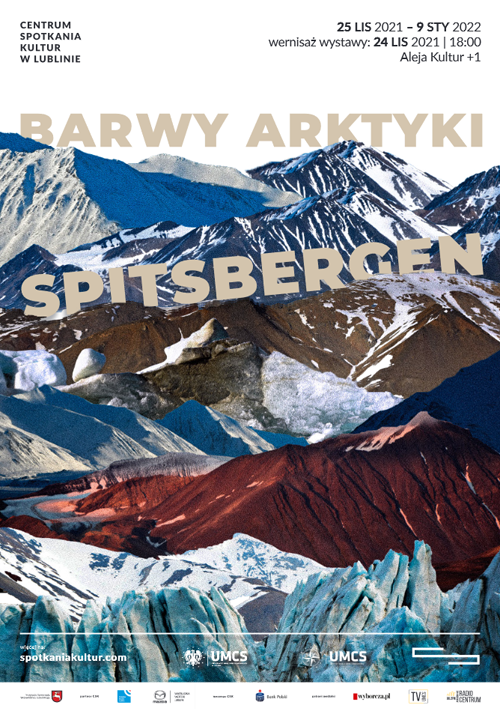
Arktyka w świadomości wielu osób jawi się jako kraina skuta lodem, schowana pod grubą warstwą białego śniegu, szara, mroczna i enigmatyczna. Rzeczywistość jest jednak inna, wręcz zaskakująca, mogąca wprowadzić w zdumienie, o czym będzie można się przekonać podczas wystawy zdjęć pt. "Barwy Arktyki - Spitsbergen".
Na ekspozycję składa się 20 autorskich zdjęć dr hab. Piotra Zagórskiego, prof. UMCS - członka KBP PAN, pracownika Katedry Geomorfologii i Paleogeografii w Instytucie Nauk o Ziemi i Środowisku Uniwersytetu Marii Curie-Skłodowskiej w Lublinie.
Głównym motywem wystawy jest ukazanie szerokiej palety zachwycających „Barw Arktyki”, związanych z panującą porą roku i operowaniem Słońca nad widnokręgiem. Na zdjęciach będzie można zobaczyć m.in. zapierającą dech w piersiach zorzę polarną, malownicze lodowce czy lokalną faunę i florę.
https://www.umcs.pl/pl/umcs-aktualnosci,1,wystawa-zdjec-barwy-arktyki-spitsbergen-,
Wystawa dostępna będzie dla zwiedzających od 25 listopada 2021 r. do 9 stycznia 2022 r. w Centrum Spotkania Kultur (Aleja Kultur +1).
Wstęp wolny.
Zapraszamy!
Pożegnanie księdza Marka
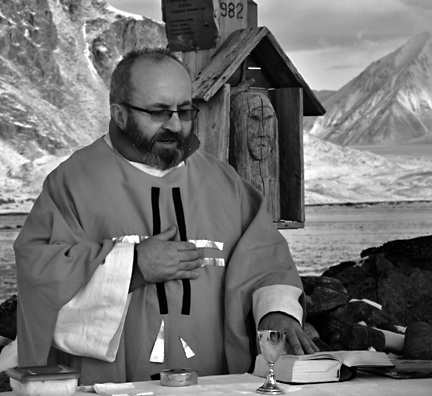
Drodzy Polarnicy,
Z wielkim smutkiem i żalem muszę Wam donieść, ze w poniedziałek 28 czerwca zmarł ksiądz Marek Michalski – proboszcz parafii w Tromso.
Ksiądz Marek od wielu lat sprawował posługę duszpasterską w naszej Stacji Polarnej w Hornsundzie na Spitsbergenie, składając wizyty świąteczne wraz z pastorem z Longyearbyen. Był człowiekiem niezmiernie przyjaznym i uczciwym. Pomagał polskim polarnikom podróżującym na Spitsbergen. Był misjonarzem Zgromadzenia Świętej Rodziny, którego na misję na dalekiej północy wiozłem do Tromso w 1998 roku swoim Polonezem, jadąc tam na konferencję. W Zmarłym tracimy naszego Przyjaciela, który dodawał nam otuchy w ciężkich chwilach oraz pogodnego kompana uczestniczącego razem z nami w czasie imprez oraz wędrówek i łowienia ryb w północnej Norwegii. Dla bardzo wielu z nas pozostanie On na zawsze w naszej pamięci. Wierzymy ze odchodząc tak młodo bo w wieku 54 lat szybko zasiądzie tam w górze u boku Pana.
W imieniu polskich polarników składam najszczersze kondolencje Jego Rodzinie i członkom Zgromadzenia Misjonarzy, Biskupowi, a także parafianom w Tromso.
Prof. dr hab. Piotr Głowacki
Przewodniczący Komitetu Badań Polarnych PAN
Odszedł Jacek Piasecki…
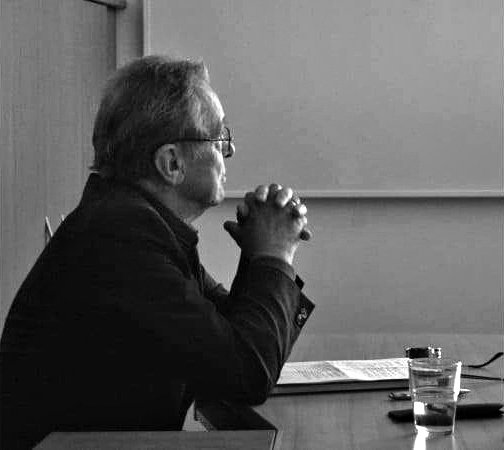 Z głębokim żalem zawiadamiamy, że 8 czerwca 2021 roku w wieku 75 lat, po długiej i dzielnej walce z chorobą zmarł dr Jacek Piasecki, klimatolog, badacz obszarów polarnych, uczestnik wypraw wrocławskich i lubelskich na Spitsbergen, członek letniej wyprawy na Stację Arctowskiego w Antarktyce, wybitny specjalista z zakresu mikroklimatu jaskiń.
Z głębokim żalem zawiadamiamy, że 8 czerwca 2021 roku w wieku 75 lat, po długiej i dzielnej walce z chorobą zmarł dr Jacek Piasecki, klimatolog, badacz obszarów polarnych, uczestnik wypraw wrocławskich i lubelskich na Spitsbergen, członek letniej wyprawy na Stację Arctowskiego w Antarktyce, wybitny specjalista z zakresu mikroklimatu jaskiń.
Wieloletni nauczyciel akademicki w Instytucie Geografii i Rozwoju Regionalnego Uniwersytetu Wrocławskiego, inspirujący dydaktyk, wychowawca kilku pokoleń wrocławskich klimatologów, geograf z prawdziwego zdarzenia.
Odszedł nasz serdeczny Przyjaciel i świetny Kolega, człowiek rozległych horyzontów i wielkiej wiedzy, zawsze serdecznie odnoszący się do współpracowników i studentów.
Jacku, będzie nam Cię bardzo brakować…
Rodzinie i Bliskim Zmarłego wyrazy szczerego współczucia składają towarzysze wypraw i Komitet Badań Polarnych PAN.
Uroczystości pogrzebowe odbędą się 14 czerwca o godz. 14 na Cmentarzu Parafialnym Świętej Rodziny przy ul. Smętnej we Wrocławiu.
Zmarł prof. dr hab. Gabriel Wójcik
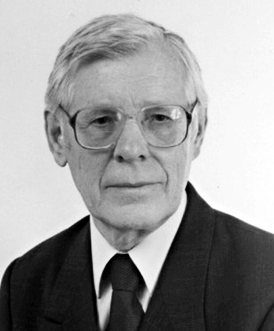
Z wielkim żalem informuję o odejściu 7 marca 2021 r. kolejnego znakomitego polarnika z Torunia, śp. prof. dr hab. Gabriela Wójcika.
Śp. prof. dr hab. Gabriel Wójcik od 1978 r. był członkiem Komitetu Badań Polarnych PAN, w ramach którego zainicjował utworzenie w 1991 r. Komisji Meteorologii i Klimatologii Polarnej (przewodnicząc jej do 2001 r.) i organizowanie corocznych seminariów. Był członkiem założycielem, a w latach 1983-1986 wiceprezesem Klubu Polarnego PTGeogr. Uczestniczył w 8 wyprawach polarnych (Spitsbergen, Islandia, Antarktyda), często w charakterze kierownika.
Pogrzeb odbędzie się w piątek 12 marca na cmentarzu komunalnym nr 2 (tzw. mały cmentarz komunalny przy Osiedlu Koniuchy). Poprzedzi go msza św. o godzinie 10:00 w Kościele Najświętszego Ciała i Krwi Chrystusa, ul. Niesiołowskiego 21 w Toruniu (Rubinkowo).
New platform on permits for and regulation of scientific fieldwork in the Arctic
INTERACT (International Network for Terrestrial Research and Monitoring in the Arctic) has in cooperation with APECS (Association of Polar early Career Scientists) the pleasure of launching the first ever comprehensive platform on permits and regulations relevant to scientific fieldwork in all Arctic Council member states. Doing scientific fieldwork in the Arctic often means many hours spend on getting the right permits from governments and other authorities for travels, collection and export of samples, movement of equipment etc. We all know of projects that were delayed or otherwise troubled by confusion over permits and related paperwork
.Until now, there has been no available overview of the most relevant permits and regulations in the Arctic. Information for each specific country has often been distributed across several websites with no or limited coordination.
To help mitigate this dilemma, INTERACT (International Network for Terrestrial Research and Monitoring in the Arctic) and APECS (Association of Polar Early Career Scientists) now launch the first ever comprehensive platform on permits and regulations relevant to scientific fieldwork in all Arctic Council member states.
Międzynarodowa Środowiskowa Szkoła Doktorska szuka kandydatów! / PhD positions at the International Environmental Doctoral School!
 Międzynarodowa Środowiskowa Szkoła Doktorska przy Centrum Studiów Polarnych w Uniwersytecie Śląskim w Katowicach (MŚSD) rozpoczęła nabór kandydatów. Zgłoszenia są możliwe do 18 sierpnia 2021 r.!
Międzynarodowa Środowiskowa Szkoła Doktorska przy Centrum Studiów Polarnych w Uniwersytecie Śląskim w Katowicach (MŚSD) rozpoczęła nabór kandydatów. Zgłoszenia są możliwe do 18 sierpnia 2021 r.!
MŚSD kształci młodą generację naukowców na najwyższym poziomie we współpracy z renomowanymi ośrodkami naukowymi i akademickimi krajowymi i międzynarodowymi.
MŚSD to wspólne działania Uniwersytetu Śląskiego w Katowicach, Instytutu Geofizyki PAN, Instytutu Matematycznego PAN oraz Instytutu Oceanologii PAN. Kształcenie w szkole doktorskiej odbywa się w trzech dyscyplinach akademickich: matematyka, nauki o Ziemi i środowisku oraz inżynieria materiałowa.
Szczegółowe informacje na temat MŚSD, w tym o procesie rekrutacji 2021/2022 znajdują się na stronie: https://www.mssd.us.edu.pl
Gorąco zapraszamy zainteresowanych aplikacją do MŚSD na webinarium dotyczące MŚSD, programu nauczania i procesu aplikacyjnego. Wcześniejsza rejestracja jest wymagana, dostępna na www: https://www.mssd.us.edu.pl/en/ieds_webinar/ (7 lipca 2021 r., godz. 15:00).
Międzynarodowa Środowiskowa Szkoła Doktorska zaprasza!!
---------------------------------------------------------------------------
Obejrzyj krótki film o Szkole Doktorskiej: https://youtu.be/iXeEPkPgYvs
International Environmental Doctoral School associated with the Centre for Polar Studies at the University of Silesia in Katowice (IEDS) announces a call for candidates. Registration of candidates in the IRK system is available to 18 August 2021!
The IEDS educates young scientific staff at the highest standards in cooperation with the renowned scientific and academic centres.
The IEDS is a joint unit of the University of Silesia in Katowice and Institutes of the Polish Academy of Sciences: the Institute of Geophysics, the Institute of Mathematics and the Institute of Oceanology.
The doctoral studies are carried out in three academic disciplines: Mathematics, Earth & related Environmental Sciences, and Materials Engineering.
For details on the IEDS and the admission process, please visit: https://www.mssd.us.edu.pl/en
We also invite you to the IEDS webinar on IEDS, PhD programme and application process. Registration is required, available on the website: https://www.mssd.us.edu.pl/en/ieds_webinar/ (Jul 7, 2021, 3 PM UTC+2)
---------------------------------------------------------------------------
Have a glimpse at Doctoral School: https://youtu.be/iXeEPkPgYvs
Polar Climate and Environmental Change in the Last Millennium
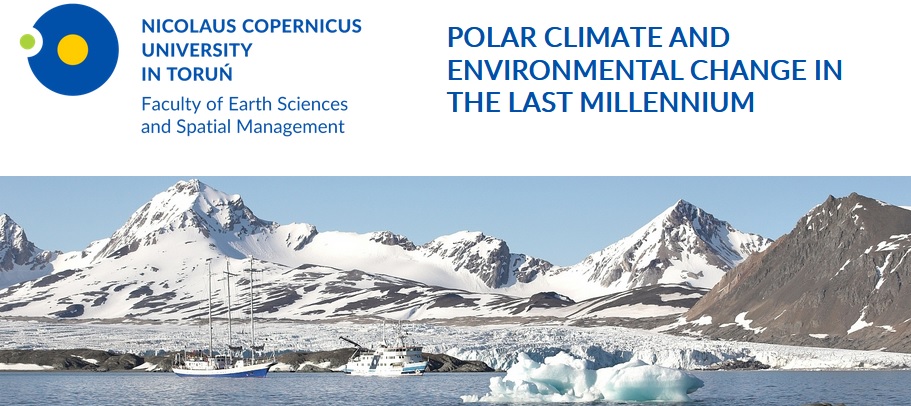
Registeration open: Polar side event “Networking from Pole to Pole: Facilitating Access for Research and Infrastructure” at All-Atlantic2021, June 2nd

Registration is now open for the side event on Polar Research “Networking from Pole to Pole: Facilitating Access for Research and Infrastructure” (https://www.allatlantic2021.eu/a/networking-from-pole-to-pole-facilitating-access-for-research-and-infrastructure/), as part of The All-Atlantic2021 – All-Atlantic R&I for a Sustainable Ocean: Ministerial High-Level & Stakeholders Conference. The event aims to discuss how we can better cooperate in Polar Research (Arctic and Antarctic/Southern Ocean) and infrastructures. This online side event webinar is organized jointly by EU-PolarNet 2 and the European Polar Board and will be held as virtual meeting at 16:00 – 18:00 CEST on Wednesday 02nd June
The purpose of the meeting is to initiate a dialogue and develop networks that facilitate access for All-Atlantic partners to national research facilities and infrastructure at the poles. The side event will start with presentations by the AANCHOR partner countries, international initiatives of interest, followed by a moderated discussion about joint interest and next steps.
To register for the side event, please visit: https://us02web.zoom.us/meeting/register/tZYvfuqspzwiGdbU1YWtuBvjpSjEI6M5uSid
This online side event will be recorded and made available on the EPB YouTube channel: https://www.youtube.com/channel/UCBZM37l_50Hb0g2AYcgqAsg
ARICE WP3: Please help spread the word
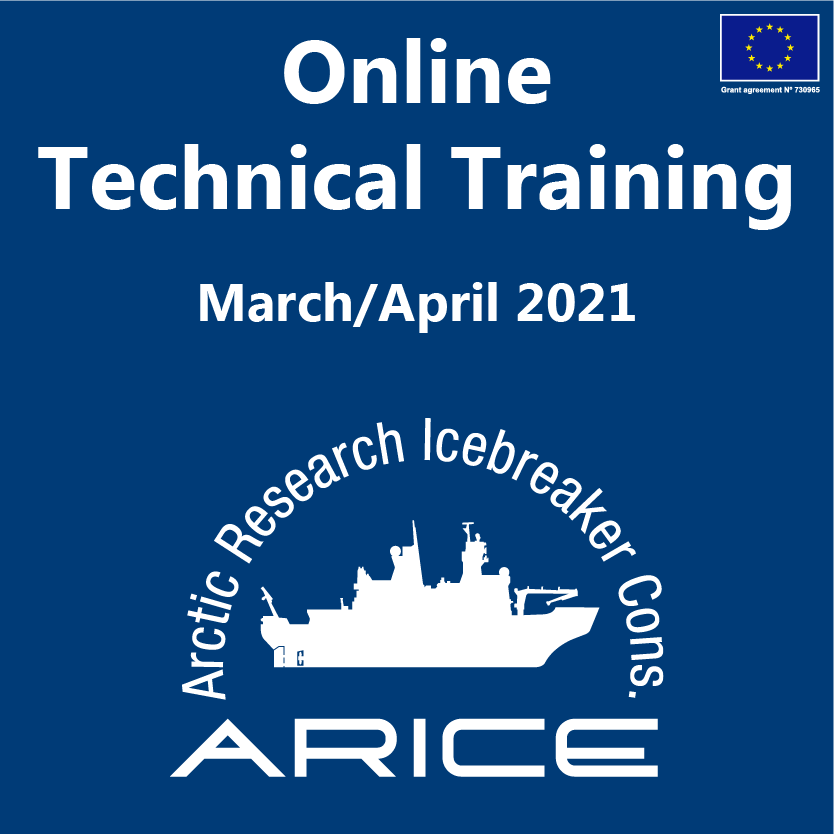
Subject: APECS-ARICE Online Technical Training: Register now
Are you an early career scientist or technical professional? Are you looking to improve your technical skills for working on a research icebreaker? Do you want to learn about marine robotics, the challenges of atmospheric measurements, how to manage working in a laboratory when it is moving and best practices in technical science support? The online technical training organized by the Arctic Research Icebreaker Consortium (ARICE) and the Association of Early Polar Career Scientists (APECS) may be just what you are looking for! Several exciting training units taught by experts looking to share their knowledge and experience will take place in March and April of 2021.
30 March, 8-11:30 How to build a sea robot
12 April, 8-11:30 Polar marine robotics
13 April, 9-10:30 Mooring operations in polar waters
13 April, 16-18:30 Atmospheric measurements aboard research vessels: Needs, opportunities and challenges
14 April, 8-9:30 Technical Science Support at the British Antarctic Survey
14 April, 13-14:30 Lab management - my lab is moving!
To register and for the detailed programme, please visit the training homepage on the APECS website.
Registration is now open to all who are interested. All courses are free of charge.
For any questions, please contact APECS Project Officer
Arctic and Baltic users workshop
Arctic and Baltic users workshop odbędzie się w dniach 8-9 kwietnia 2021.
Pierwszy dzień będzie ogólny, poświęcony technologii pływaków Argo, danym itd. W czasie drugiego dnia będą dwie dwugodzinne sesje obejmujące tematykę Argo na Bałtyku i w Arktyce.
Wszelkie informacje i rejestracja na stronie:
https://www.euro-argo.eu/News-Meetings/Meetings/Others/Arctic-and-Baltic-users-workshop

rok 2020
- Details
Odszedł Kapitan Jerzy Różański
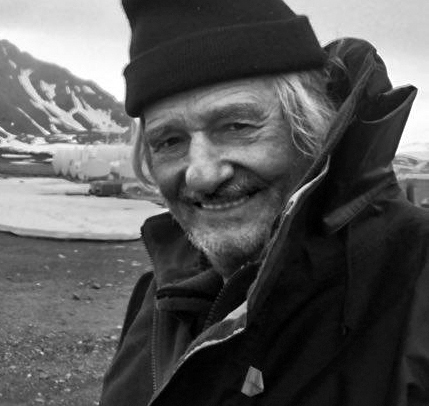 Z wielkim żalem informujemy, że w dniu 27 grudnia 2020 roku po ciężkiej chorobie odszedł od nas Kapitan Jerzy Różański.
Z wielkim żalem informujemy, że w dniu 27 grudnia 2020 roku po ciężkiej chorobie odszedł od nas Kapitan Jerzy Różański.
Jerzy Różański to budowniczy, właściciel i Kapitan jachtu Eltanin. Związany z Arktyką już od lat 70tych. To wielki przyjaciel wszystkich polarników, który wielokrotnie pomagał polskim ekspedycjom badawczym. Przez wiele lat pływał Eltaninem między Hornsundem (Polską Stacją Polarną im. Stanisława Siedleckiego), Calypsobyen (Stacją Polarną UMCS z Lublina), Kaffiøyrą (Stacją Polarną UMK z Torunia), Petuniabuktą (bazą Uniwersytetu im. Adama Mickiewicza z Poznania) i po niezliczonych innych miejscach, w które mało kto był gotów wpłynąć. Nikt tak nie znał wód Svalbardu jak On. Nigdy nie zawiódł tych, co jego pomocy potrzebowali. To jeden z najbardziej rozpoznawalnych Polaków na Svalbardzie.
Jurek Różański wielokrotnie pokonywał niebezpieczne fale arktycznych wód. Tej ostatniej, jaką była Jego choroba, choć się nie poddawał, nie udało mu się pokonać…W naszej pamięci Kapitan Jerzy Różański na zawsze pozostanie, jako nasz wielki Polarny Przyjaciel.
Spitsbergeńskie fiordy już nigdy nie będą takie same…
Żegnaj Kapitanie, żegnaj Przyjacielu!
Polska Polityka Polarna
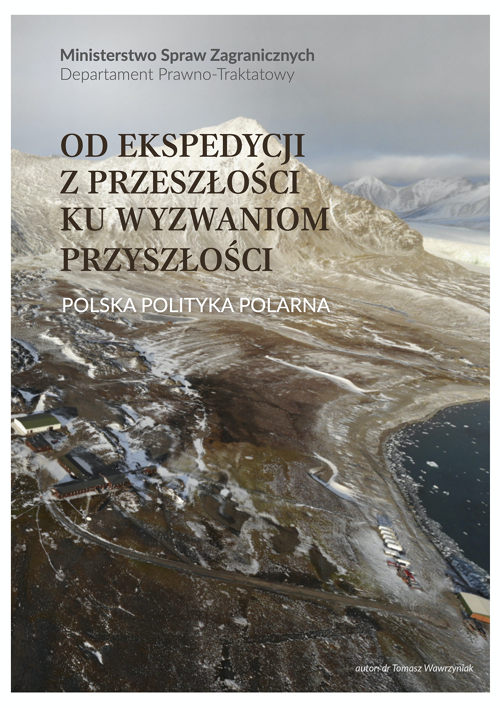
11 września 2020 roku Rada Ministrów przyjęła uchwałę w sprawie zatwierdzenia dokumentu rządowego pt.: „Od ekspedycji z przeszłości ku wyzwaniom przyszłości. Polska Polityka Polarna”.
Dokument, koordynowany przez Ministerstwo Spraw Zagranicznych, powstał w ścisłej współpracy z polskimi badaczami polarnymi. Wykorzystano również dokumenty wypracowane przez polarne środowisko naukowe, jak „Strategia polskich badań polarnych. Koncepcja na lata 2017–2027”.
Główny długoterminowy cel polskiej polityki polarnej to „zapewnienie stałej i aktywnej obecności Polski w dialogu, współpracy oraz kształtowaniu polityki polarnej na świecie, przy wykorzystaniu posiadanych zasobów własnych oraz poszukiwaniu nowych”, co przekłada się na cztery cele szczegółowe:
- zapewnienie aktywnego udziału oraz wpływu Polski na procesy kształtujące przyszłość regionów polarnych,
- wzmacnianie obecności Polski w regionach polarnych, w tym zapewnienie rozwoju aktywności naukowej polskich badaczy,
- zapewnienie problematyce polarnej należytej wagi w polityce wewnętrznej państwa,
- aktywne poszukiwanie nowych i innowacyjnych ścieżek rozwoju pozycji Polski w sprawach polarnych.
Cele te będą realizowane poprzez szerokie spektrum działań o charakterze politycznym, prawnym, instytucjonalnym oraz inwestycyjnym, których zarys prezentuje dokument PPP.
Zachęcamy do zapoznania się z całością dokumentu, który dostępny jest na stronie MSZ: https://www.gov.pl/web/dyplomacja/od-ekspedycji-z-przeszlosci-ku-wyzwaniom-przyszlosci-polska-polityka-polarna.
Zmarł uczestnik 44. Polskiej Wyprawy Antarktycznej
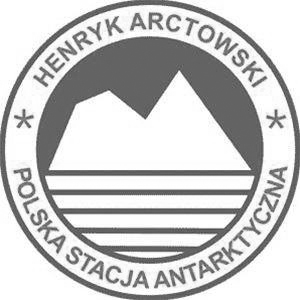
Z głębokim żalem informujemy, że w dniu 29 sierpnia br. zmarł nagle uczestnik 44. Polskiej Wyprawy Antarktycznej. Poruszeni tą śmiercią przekazujemy wyrazy najgłębszego współczucia Rodzicom Macieja, a także Rodzinie i Bliskim.
Instytut Biochemii i Biofizyki PAN
3rd Arctic Science Ministerial Research Community Workshops
 You are invited to participate in an online workshop to discuss topics and ideas that you think are important for policy makers and the Arctic Science Ministers to better understand and prioritize at the Third Arctic Science Ministerial (ASM3; https://asm3.org/). Bringing together States, Arctic Indigenous participants, and international organizations, ASM3 aims to take action on coordinated Arctic observing, research, and education in an open and transparent format which includes all Arctic stakeholders.
You are invited to participate in an online workshop to discuss topics and ideas that you think are important for policy makers and the Arctic Science Ministers to better understand and prioritize at the Third Arctic Science Ministerial (ASM3; https://asm3.org/). Bringing together States, Arctic Indigenous participants, and international organizations, ASM3 aims to take action on coordinated Arctic observing, research, and education in an open and transparent format which includes all Arctic stakeholders.
In an effort to engage the broader Arctic research community in the ASM3 process, IASC (https://iasc.info/), IASSA (https://iassa.org/), and APECS (https://www.apecs.is/) are convening two ASM3 Research Community Workshops on 15 June 2020.
- Each two hour workshop will start with an introduction to the ASM3 process and lay out the goals of the workshop.
- The core of the online workshop will be an hour-long session for small group breakout discussions (6-8 people), each group dedicated to one of the four themes below.
- All attendees will then reconvene to report back and share the discussions.
- First option: 15 June 2020, 8:00-10:00 GMT(17:00 Tokyo, 11:00 Moscow, 10:00 Berlin, 9:00 London). To participate, register at http://tiny.cc/ASM3RCW1
- Second option: 15 June 2020, 16:00-18:00 GMT (8:00-10:00 Alaska, 12:00 Ottawa / Washington, D.C., 14:00 Nuuk). To participate, register at http://tiny.cc/ASM3RCW2
- Please note: the workshops will be held via Zoom, but phone call-in numbers will also be available. The workshops’ working language will be English.
We encourage ALL those who work in the realm of Arctic research to participate; this includes researchers, managers, Arctic residents and Indigenous Peoples, partners, educators, policy makers, and other stakeholders. Science ministry representatives are also welcome to participate. However, the organizers wish to emphasize that this is an opportunity for individual contributions. Workshop participants are invited to contribute their own perspectives and not necessarily to represent a broader group of any kind (there are other avenues for nations, Indigenous Peoples’ Organizations, and international science organizations).
“Knowledge for a Sustainable Arctic” is the overall theme of ASM3. Under that umbrella, four sub-themes are focused on taking action on the most urgent challenges facing the Arctic, which international scientific cooperation can help achieve:
- Observe the status of Arctic changes
- Understand the local and global impacts
- Respond to the changes based on a shared understanding
- Strengthen these efforts through education and capacity-building for future generations
These four steps are not independent, but rather an iterative cycle. They represent the necessary actions to realize our overarching goal. The four sub-themes are described in more detail here (https://asm3.org/library/Files/ASM3%20Themes.pdf).
An online workshop can enable broad participation, especially in times where conferences and international travel are cancelled and uncertain. However, we recognize that online engagement is not equal for all and can exclude people, too. In addition to participating in the online workshops, all members and stakeholders of the Arctic research community (including Arctic residents and Indigenous Peoples) are invited to fill out this survey, which mirrors the workshops’ structure: http://tiny.cc/ASM3ScienceForm
The workshop organizers will make a summary report based on the discussions in the workshops and survey, and this report will be shared with the ASM3 Organizing Committee and Science Advisory Board. If you have any input or questions about these workshops, please contact
Fill out the ASM3 Research Community Workshop Survey here!
"Zachmurzenie Spitsbergenu na podstawie obserwacji w Polskiej Stacji Polarnej w Hornsund"

Zielono-biała Księga Polskich Badań Polarnych
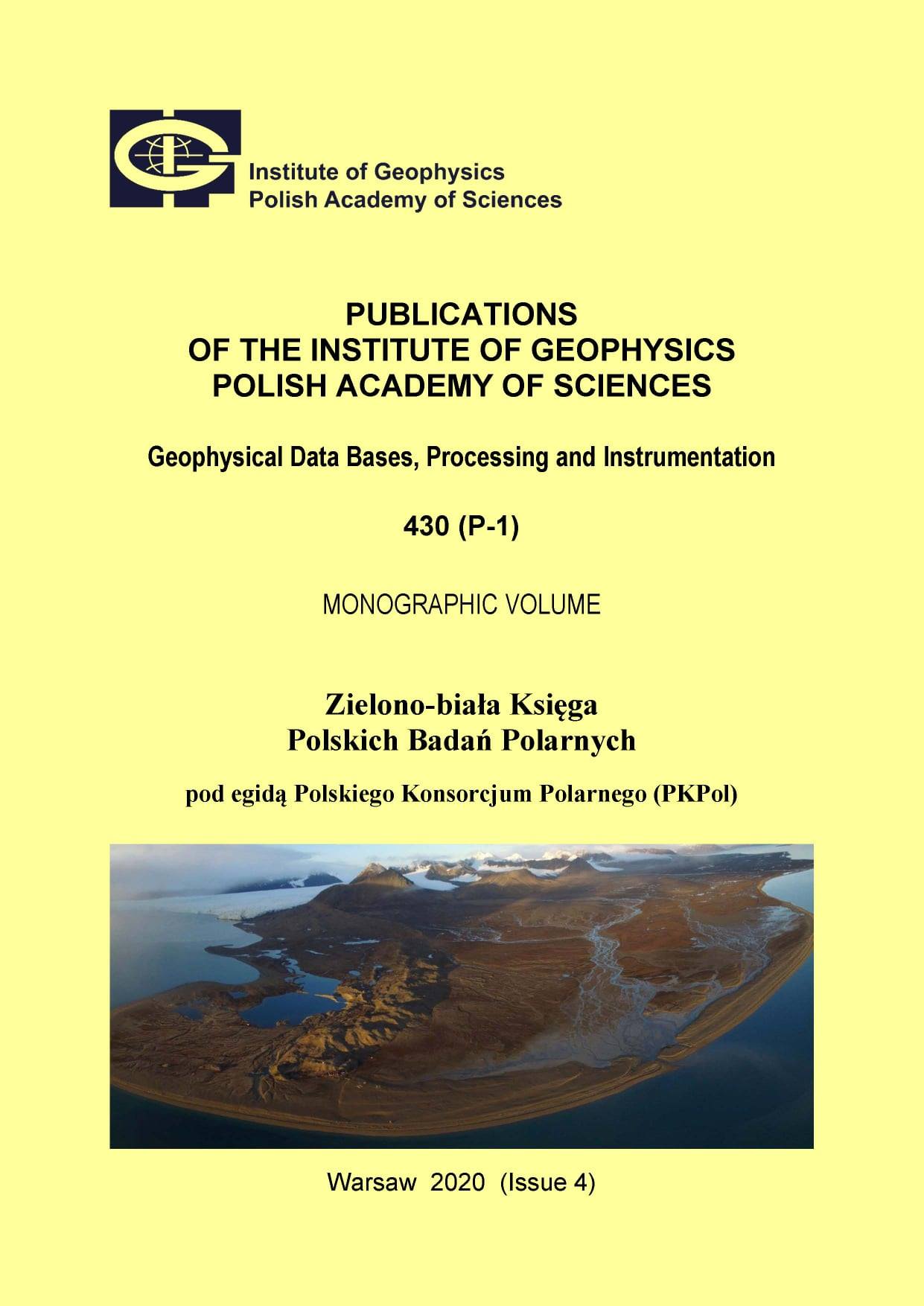
" Biała księga to dokument zawierający opracowane urzędowo, koncepcyjne propozycje odnoszące się do określonych dziedzin polityki unijnej i zazwyczaj prezentuje katalog konkretnych propozycji i środków, których realizacja ma służyć urzeczywistnianiu zadań traktatowych [UE].
Zielona księga jest raportem zbierającym informacje na określony temat i zazwyczaj stanowi punkt wyjścia do opracowania białej księgi. Niniejszy dokument łączy walory obu rodzajów ksiąg. "
Nabór kandydatek i kandydatów na UCZESTNIKÓW 44 WYPRAWY POLARNEJ IGF PAN
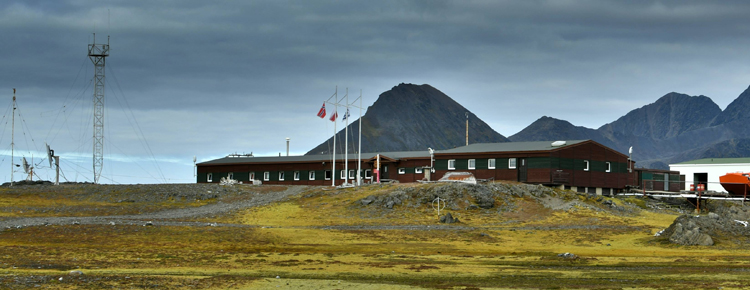
nstytut Geofizyki Polskiej Akademii Nauk w Warszawiee ogłasza nabór kandydatek i kandydatów na uczestników 44 Wyprawy Polarnej IGF PAN do Polskiej Stacji Polarnej Hornsund na Spitsbergenie w sezonie 2021/2022.
Więcej informacji w załączniku pdf oraz na stronie
Krzysztof Roman Lankauf
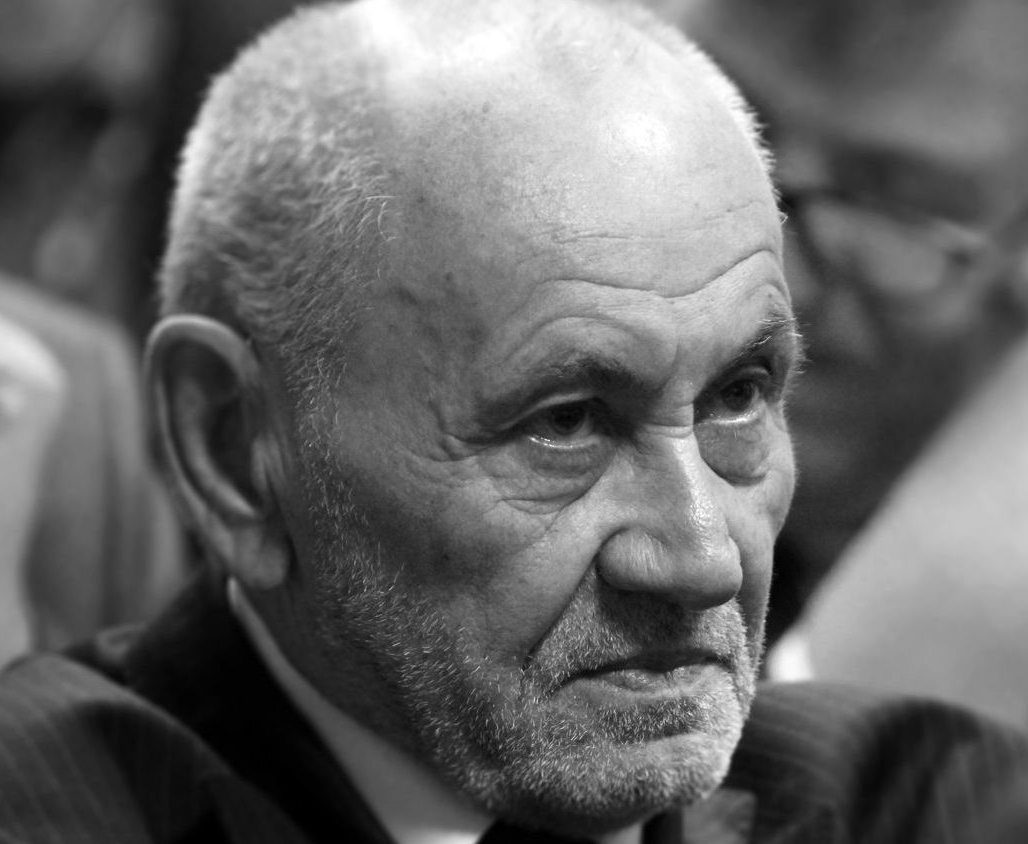 W wieku 75 lat zmarł dr Krzysztof Roman Lankauf, emerytowany pracownik Wydziału Biologii i Nauk o Ziemi UMK, geograf i geomorfolog, badacz współczesnych procesów stokowych i sedymentologicznych oraz zlodowaceń Spitsbergenu.
W wieku 75 lat zmarł dr Krzysztof Roman Lankauf, emerytowany pracownik Wydziału Biologii i Nauk o Ziemi UMK, geograf i geomorfolog, badacz współczesnych procesów stokowych i sedymentologicznych oraz zlodowaceń Spitsbergenu.
Krzysztof Roman Lankauf urodził się 22 września 1945 r. w Łążynie (gmina Zławieś Wielka, powiat toruński). W 1968 r. ukończył studia geograficzne na Wydziale Biologii i Nauk o Ziemi Uniwersytetu Mikołaja Kopernika w Toruniu. Pracę magisterską pt. "Współczesne procesy denudacyjne na stokach dolin w okolicach Torunia" napisał pod kierunkiem dr Zofii Churskiej. Po studiach został zatrudniony jako pracownik naukowo-techniczny w Zakładzie Geografii Fizycznej, w powstającej właśnie Pracowni Sedymentologicznej. Oprócz pracy na stanowisku technicznym zajmował się badaniami współczesnych procesów stokowych, zwłaszcza mechanizmem spłukiwania w rejonie Zamku Bierzgłowskiego - Rzęczkowa - Skłudzewa oraz w Ciechocinie nad Drwęcą. W 1975 roku został nauczycielem akademickim (starszym asystentem), równocześnie kontynuował badania dotyczące zagadnień sedymentologii osadów czwartorzędowych, zwłaszcza pochodzenia wodnego.
Od 1977 roku Jego drugą pasją stały się zagadnienia współczesnego zlodowacenia na Spitsbergenie. Na Spitsbergen wyjeżdżał wielokrotnie (1977,1978, 1985, 1989, 1995, 1996 i 2000). Jego badania polarne zaowocowały w 1999 r. rozprawą doktorską pt. "Recesja lodowców rejonu Kaffiøyry (Ziemia Oskara II - Spitsbergen) w XX wieku". Na Spitsbergenie prowadził również pomiary topograficzne, jest autorem wielu map lodowców w regionie Kaffiøyry. Jest autorem kilkudziesięciu prac naukowych z zakresu geomorfologii, sedymentologii oraz współczesnych zlodowaceń. W latach 1981-1982 pełnił funkcję zastępcy dyrektora Instytutu Geografii UMK, a w okresie 1987-2006 był kierownikiem administracyjnym w Instytucie. Równolegle kierował Pracownią Sedymentologii i Paleoekologii oraz Interdyscyplinarnym Zespołem Metod Datowania. W 2010 r. przeszedł na zasłużoną emeryturę.
Dr Krzysztof Roman Lankauf zmarł 24 listopada.
https://torun.wyborcza.pl/torun
ARCTIC FUTURES SYMPOSIUM 2020

ARCTIC FUTURES SYMPOSIUM 2020
11th edition - online - 30 November to 2 December 2020
This is a friendly reminder that the International Polar Foundation along with its many Arctic stakeholder partners has invited you to attend the 11th annual Arctic Futures Symposium.
Due to COVID-19, the Arctic Futures Symposium 2020 will be held as a series of webinars over three successive days in the afternoon Central European Time (GMT+1) during week 49 (Monday 30 November - Wednesday 2 December).
Every year, the Arctic Futures Symposium creates discussions and exchanges between Arctic stakeholders from various backgrounds and with different perspectives over key challenges and issues the Arctic is facing.
The symposium will feature panel discussions that cover a number of key topics chosen by Arctic stakeholder partners including:
- Arctic Challenges
- Arctic Policies of the EU, Arctic States, and Arctic Stakeholders
- Arctic Community Needs and Preparedness
- Pollution, Climate Change and Biodiversity: Challenges and Solutions
- Community Resilience through Empowerment
- A Uniquely Arctic Entrepreneurship and Investment Culture
- The EU's Engagement in the Arctic and Implementing the EU Green Deal
An outline of topics that will be addressed in the webinars is available on the symposium website. There you can also find a list of confirmed speakers as well as the symposium programme.
The event is free of charge and open to all.
If you would like to attend the event, registration is required, as it helps the event managers to better plan the logistics of the event and better meet participants' needs. A link to join the webinar will only be sent to participants who have registered.
If you have any trouble registering, or if you have any questions regarding the symposium, please don't hesitate to contact us at
Thank you for your attention. We look forwards to seeing many of you online in a few weeks' time!
Zmarł prof. Marek Grześ
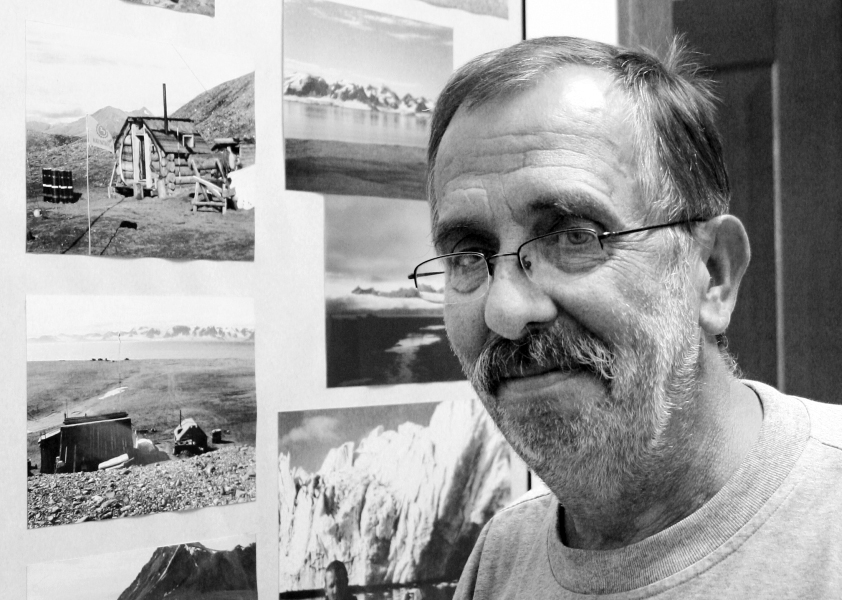
20 sierpnia zmarł dr hab. Marek Grześ, prof. UMK, znany hydrolog i glacjolog, uczestnik pierwszej Toruńskiej Wyprawy Polarnej na Spitsbergen. Miał 74 lata.
Dr hab. Marek Grześ, prof. UMK urodził się 23 maja 1946 r. w Zgorzelcu. Studia geograficzne na Uniwersytecie Mikołaja Kopernika w Toruniu ukończył w 1969 r. W 1976 r. uzyskał stopień doktora nauk przyrodniczych, za pracę nt. osadów dennych jezior. W 1992 r. otrzymał stopień doktora habilitowanego nauk o Ziemi w zakresie geografii – hydrologii na podstawie rozprawy pt. „Zatory i powodzie zatorowe na dolnej Wiśle. Mechanizmy i warunki”.
fot. Andrzej Romański
Po ukończeniu studiów rozpoczął pracę w Stacji Badawczej w Siemionkach nad jeziorem Gopło na stanowisku asystenta na Wydziale Biologii i Nauk o Ziemi UMK. W 1973 r. podjął pracę w Zakładzie Geomorfologii i Hydrologii Instytutu Geografii i Przestrzennego Zagospodarowania Polskiej Akademii Nauk w Toruniu, początkowo na stanowisku asystenta, a od 1976 r. adiunkta. Od 1992 r. pracował na stanowisku docenta. W 1987 r. został kierownikiem Stacji Badawczej PAN w Dobiegniewie nad Zbiornikiem Włocławskim. W 1994 r. rozpoczął pracę jako adiunkt w Zakładzie Hydrologii i Gospodarki Wodnej Instytutu Geografii UMK, a w latach 1996-2000 był jego kierownikiem. Następnie był kierownikiem Zakładu Kriologii i Badań Polarnych (2000-2012).
Problemy badawcze podejmowane przez prof. Marka Grzesia koncentrowały się wokół zagadnień hydrologicznych, glacjologicznych, gospodarki wodnej, a także fizyki wody i ochrony zasobów wodnych. Prowadził badania na Zbiorniku Włocławskim i dolnej Wiśle, gdzie realizował prace dotyczące problemów związanych z powstawaniem zatorów lodowych i przeciwdziałaniem ich skutkom. Prowadził je w oparciu o własną, autorską metodykę badań. Był autorem ponad 100 publikacji naukowych poświęconych problemom hydrologii Polski i krajów polarnych.
Brał udział w wyprawach naukowych m.in. do Mongolii (1974), prowadził badania glacjologiczne w Górach Skandynawskich (1985) i Tien-Szan (1990). Jednak Jego największą pasją stały się badania polarne na Spitsbergenie. Uczestniczył w pierwszej Toruńs
kiej Wyprawie Polarnej na Spitsbergen w 1975 r., a następnie w wyprawach Polskiej Akademii Nauk do Hornsundu (letnie wyprawy 1978 i 1979 oraz zimowanie w latach 1980/1981). Na Spitsbergen wracał wielokrotnie, najczęściej
jako kierownik wielu wypraw. Przyczynił się do rozszerzenia badań z zakresu glacjologii, hydrologii i permafrostu, a także do rozbudowy i modernizacji Stacji Polarnej UMK na Spitsbergenie. Odbył liczne staże zagraniczne w Rosji, Szwecji, USA, Niemczech, Finlandii, Francji, Austrii, Szwajcarii.
W Uniwersytecie prowadził zajęcia specjalistyczne, głównie z hydrologii, glacjologii, gospodarki wodnej. Wykształcił kilkudziesięciu magistrów i wypromował dwóch doktorów. Był kierownikiem Międzywydziałowych Studiów Matematyczno-Przyrodniczych.
Był również doskonałym organizatorem. Dzięki Jego staraniom od 2009 r. odbywały się specjalistyczne warsztaty pt. „Lodowe problemy rzek”. Współpracował z wieloma instytucjami odpowiedzialnymi za gospodarkę wodną w Polsce. Był autorem lub współautorem wielu opracowań aplikacyjnych z zakresu gospodarki wodnej.
Pełnił funkcję prezesa Klubu Polarnego Polskiego Towarzystwa Geograficznego, był członkiem wielu organizacji: Rady Naukowej IGiPZ PAN w Warszawie, Komitetu Gospodarki Wodnej PAN, Komitetu Geofizyki PAN, Komitetu Badań Polarnych PAN oraz członkiem międzynarodowych organizacji: Komisji Śniegu i Lodu IAHS, Międzynarodowej Asocjacji Badań Hydraulicznych, Międzynarodowego Stowarzyszenia Glacjologicznego – IGS.
Prof. Marek Grześ zmarł 20 sierpnia. Uroczystości pogrzebowe rozpoczną się 26 sierpnia o godz. 13:00 mszą świętą w Kościele Świętych Apostołów Piotra i Pawła przy ul. Ks. Antoniego Owczarka w Ciechocinku.
https://torun.wyborcza.pl/torun/
APS / Advances in Polar Science

IASC Releases 2020 State of Arctic Science Report
 IASC's 2020 State of Arctic Science Report aims to be a cohesive synthesis of international Arctic research activities and priorities, as gathered from the Arctic research community itself.
IASC's 2020 State of Arctic Science Report aims to be a cohesive synthesis of international Arctic research activities and priorities, as gathered from the Arctic research community itself.
Arctic science is moving faster than ever, and so this report is aimed at Arctic science agencies, Arctic science managers, and Arctic science users including a wide range of decisionmakers and policymakers, to help all Arctic science stakeholders stay up to date on Arctic research.
IASC, the International Arctic Science Committee, was founded in 1990 with a mission of encouraging and facilitating cooperation in all aspects of Arctic research, in all countries engaged in Arctic research, and in all areas of the Arctic region. IASC is a connector – connecting scientists across international, disciplinary, and cultural boundaries and connecting with those who do research with those who seek the outcomes of that research.
One way in which IASC does this is by providing a collective voice to the international Arctic research community. Decadally, this is addressed through the International Conference on Arctic Research Planning process (e.g., ICARP-III’s “Integrating Arctic Research - A Roadmap for the Future”). However, with rising temperatures, geopolitical interests, the initiation of the Arctic Science Ministerial meetings, and an increasingly active landscape of international Arctic (science) organizations, Arctic science is moving faster than ever.
IASC is grounded in our community of scientists and aims to provide a consensus voice – by reaching out to their national communities, connecting internationally, and reporting out. This report presents a synthesis of a breadth of input, but it is not exhaustive, as input came only through the IASC Working Groups. Indeed, there are many other NGOs, IGOs, institutions, nonprofits, Indigenous Peoples’ Organizations, companies, countries, and more working in the Arctic knowledge space. Nevertheless, this report comes from scientists themselves.
Each of the 23 countries repres
ented in IASC’s scientific Working Groups (Atmosphere, Cryosphere, Marine, Social & Human, Terrestrial) was asked to submit a summary detailing the research priorities and activities in their country. This corpus of content was compiled by each Working Group’s leadership. These were condensed into this report here, then reviewed by the IASC Executive Committee and Council with an eye towards interdisciplinary connections. For national and/or disciplinary breakdowns, please contact IASC Working Group members directly (contact information is available at https://iasc.info).
Following an internal recommendation, this report, IASC’s 2020 State of Arctic Science Report is aimed at Arctic science agencies, Arctic science managers, and Arctic science users including a wide range of decisionmakers and policymakers – e.g., national research councils and scientific foundations, Arctic ministers and ambassadors, international science bodies, and more. It will also be delivered to the organizers of the 3rd Arctic Science Ministerial.
It is exciting to be able to learn from the insights of the Arctic science community, so please read on and also join IASC in thanking the community for their time and input.
_________________________________________________________________________
nformation which you would like to put out to IASSA members please send to Ann Crawford at
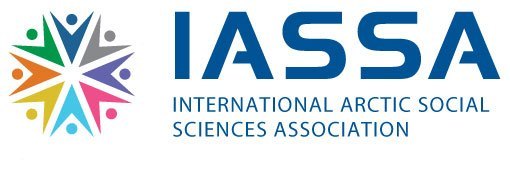
Jest już Muzeum Badań Polarnych w Polsce
Po wielu latach starań mamy wreszcie sfinalizowaną sprawę stałego miejsca dla Muzeum Badań Polarnych.
Idea tego muzeum narodziła się w Lublinie, a muzeum pierwotnie miało mieścić się w jednym ze spichlerzy w Kazimierzu Dolnym nad Wisłą. Muzeum pozostało w końcu na ziemi lubelskiej dzięki wsparciu samorządu tego województwa. Pokonanie wielu barier formalnych i uzyskanie akceptacji dla idei polarnych w Ministerstwie Kultury i Dziedzictwa Narodowego było możliwe dzięki niesamowitemu zaangażowaniu i pasji dr Andrzeja Piotrowskiego jako organizatora i kustosza tego muzeum.
Czym będzie zajmowało się Muzeum Badań Polarnych wynika ze Statutu nadanego przez Sejmik Województwa Lubelskiego.
Pozostaje nam więc teraz zakasać rękawy i przegrzebać archiwa oraz magazyny ze sprzętem i okazami w naszych instytutach naukowych i na uczelniach oraz prywatnych zbiorach, aby mogły być one udostępnione szerokim rzeszom społeczeństwa.
Prof. dr hab. Piotr Głowacki - Przewodniczący Komitetu Badań Polarnych przy Prezydium PAN
3rd Arctic Science Ministerial Research Community Workshops
 You are invited to participate in an online workshop to discuss topics and ideas that you think are important for policy makers and the Arctic Science Ministers to better understand and prioritize at the Third Arctic Science Ministerial (ASM3; https://asm3.org/). Bringing together States, Arctic Indigenous participants, and international organizations, ASM3 aims to take action on coordinated Arctic observing, research, and education in an open and transparent format which includes all Arctic stakeholders.
You are invited to participate in an online workshop to discuss topics and ideas that you think are important for policy makers and the Arctic Science Ministers to better understand and prioritize at the Third Arctic Science Ministerial (ASM3; https://asm3.org/). Bringing together States, Arctic Indigenous participants, and international organizations, ASM3 aims to take action on coordinated Arctic observing, research, and education in an open and transparent format which includes all Arctic stakeholders.
In an effort to engage the broader Arctic research community in the ASM3 process, IASC (https://iasc.info/), IASSA (https://iassa.org/), and APECS (https://www.apecs.is/) are convening two ASM3 Research Community Workshops on 15 June 2020.
- Each two hour workshop will start with an introduction to the ASM3 process and lay out the goals of the workshop.
- The core of the online workshop will be an hour-long session for small group breakout discussions (6-8 people), each group dedicated to one of the four themes below.
- All attendees will then reconvene to report back and share the discussions.
- First option: 15 June 2020, 8:00-10:00 GMT(17:00 Tokyo, 11:00 Moscow, 10:00 Berlin, 9:00 London). To participate, register at http://tiny.cc/ASM3RCW1
- Second option: 15 June 2020, 16:00-18:00 GMT (8:00-10:00 Alaska, 12:00 Ottawa / Washington, D.C., 14:00 Nuuk). To participate, register at http://tiny.cc/ASM3RCW2
- Please note: the workshops will be held via Zoom, but phone call-in numbers will also be available. The workshops’ working language will be English.
We encourage ALL those who work in the realm of Arctic research to participate; this includes researchers, managers, Arctic residents and Indigenous Peoples, partners, educators, policy makers, and other stakeholders. Science ministry representatives are also welcome to participate. However, the organizers wish to emphasize that this is an opportunity for individual contributions. Workshop participants are invited to contribute their own perspectives and not necessarily to represent a broader group of any kind (there are other avenues for nations, Indigenous Peoples’ Organizations, and international science organizations).
“Knowledge for a Sustainable Arctic” is the overall theme of ASM3. Under that umbrella, four sub-themes are focused on taking action on the most urgent challenges facing the Arctic, which international scientific cooperation can help achieve:
- Observe the status of Arctic changes
- Understand the local and global impacts
- Respond to the changes based on a shared understanding
- Strengthen these efforts through education and capacity-building for future generations
These four steps are not independent, but rather an iterative cycle. They represent the necessary actions to realize our overarching goal. The four sub-themes are described in more detail here (https://asm3.org/library/Files/ASM3%20Themes.pdf).
An online workshop can enable broad participation, especially in times where conferences and international travel are cancelled and uncertain. However, we recognize that online engagement is not equal for all and can exclude people, too. In addition to participating in the online workshops, all members and stakeholders of the Arctic research community (including Arctic residents and Indigenous Peoples) are invited to fill out this survey, which mirrors the workshops’ structure: http://tiny.cc/ASM3ScienceForm
The workshop organizers will make a summary report based on the discussions in the workshops and survey, and this report will be shared with the ASM3 Organizing Committee and Science Advisory Board. If you have any input or questions about these workshops, please contact
Fill out the ASM3 Research Community Workshop Survey here!
Odszedł od nas na zawsze kolega Marek Grad
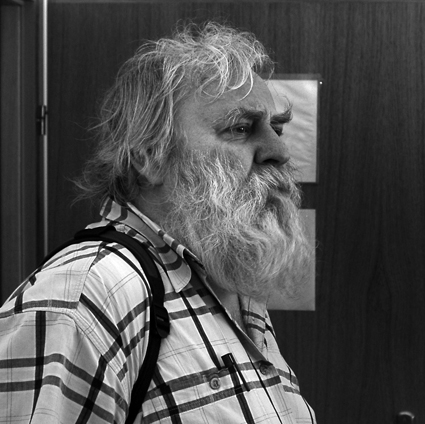
Z wielkim smutkiem i żalem informuję, że 17 maja w wieku 68 lat zmarł nagle i niespodziewanie nasz znakomity polarnik - Profesor Marek GRAD, uczestnik wypraw do Arktyki i Antarktyki. Dzisiaj ze względu na pandemię i związane z tym ograniczenia, pożegnaliśmy Marka na warszawskim cmentarzu na Bródnie w dużo skromniejszym gronie. Nad grobem w imieniu Komitetu i całej „polarnej rodziny” przekazałem rodzinie Marka nasze kondolencje i wyrazy współczucia. Zawsze będziemy Go pamiętali jako człowieka stojącego na straży rzetelności prowadzonych badań i prezentowanych wyników, a jednocześnie jako Kolegę wspierającego nas w nowych inicjatywach i wyzwaniach.
Przewodniczący Komitetu Badań Polarnych
Prof. dr hab. Piotr Glowacki
P.S. Tych, którzy będą mieli w przyszłości chęć i okazję zapalenia znicza na Jego grobie informuję, że grób jest położony 20 m w kierunku zachodnim od skrzyżowania alejki 51 z alejką H.
Arctic Science Summit Week 2021
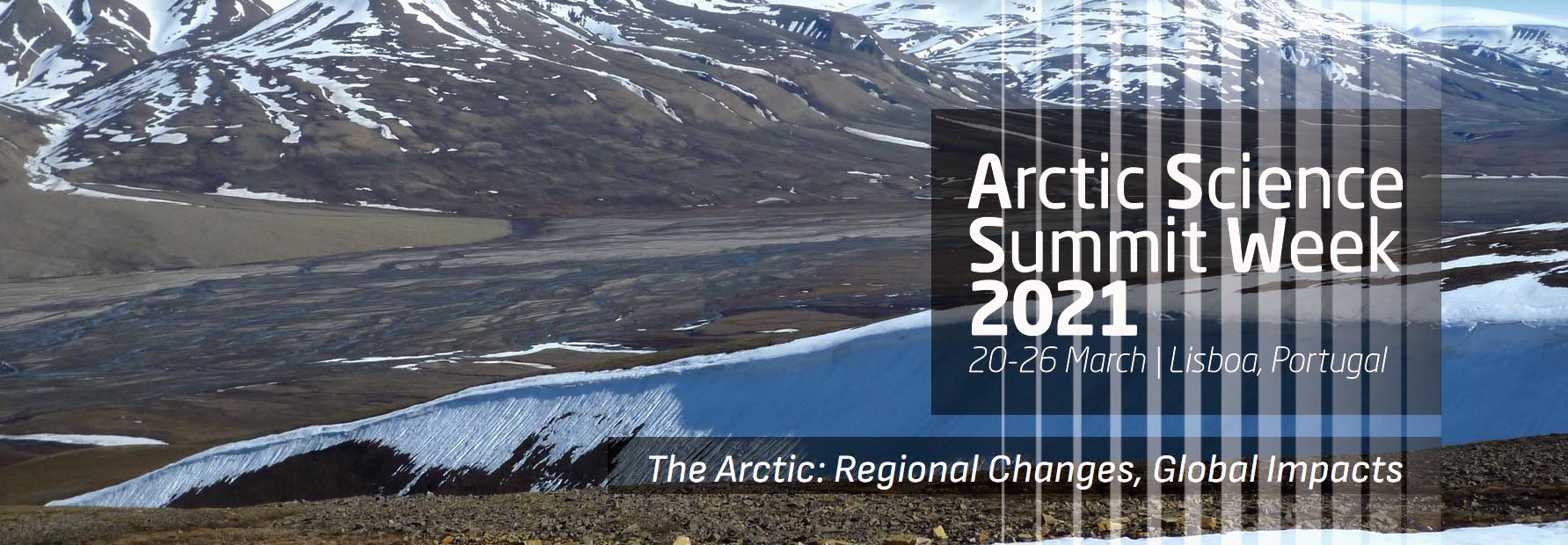
Invitation to Lisbon for the ASSW2021
On behalf of the Portuguese Minister of Science, Technology and Higher Education, the Portuguese Foundation for Science and Technology (FCT) and the Local Organizing Committee we are pleased to invite you to take part in the Arctic Science Summit Week 2021, which will take place in Lisbon from 20 to 26 March 2021. The Conference is organized by FCT, Ciência Viva, AIR Center, the Portuguese Arctic Community and by IASC and partners.
Framed by the overarching theme for the Science Conference “The Arctic: Regional Changes, Global Impacts”, Lisbon invites International experts on the Arctic and Indigenous Peoples to discuss the “New Arctic” and also its impacts and interactions to and with the lower latitudes.
It will be a pleasure to warmly receive you all in Lisbon for the ASSW2021.
Looking forward to seeing you all Lisbon next year.
Helena Pereira, President of the Board of Directors of the Portuguese Foundation of Science and Technology
João Canário, Chairman of the ASSW2021
Gonçalo Vieira, Chairman of the ASSW2021 International Scientific Committee
ASM3 Science Feedback: Version 1
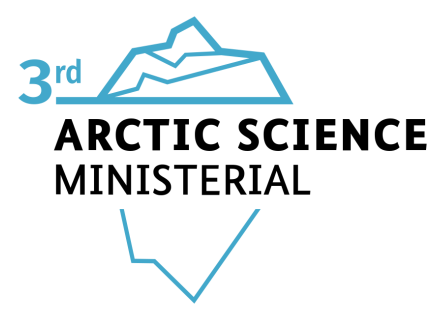 ASM3 Science Feedback: Version 1
ASM3 Science Feedback: Version 1
SCAR Fellowship Opportunities

Dear Colleagues,
SCAR launches its 2020 Antarctic-related Fellowships for early-career researchers today. SCAR will offer 3 to 4 fellowships of up to USD $15,000 each for 2020. The Fellowships enable early-career researchers to join a project team from another country, opening up new opportunities and often creating partnerships that last for many years and over many Antarctic field seasons.
The deadline for fellowship applications is 26 August 2020.
Find out how to apply for the fellowship here: https://scar.org/awards/fellowships/information/
The SCAR Secretariat has compiled a list of frequently asked questions on our website, where you can also find an overview of past and present SCAR Fellows.
Other opportunities from partners
The Scientific Committee on Antarctic Research (SCAR), the Council of Managers of National Antarctic Programs (COMNAP), and the Commission for the Conservation of Antarctic Marine Living Resources (CCAMLR) have been working together for many years to support talented early-career researchers, scientists, engineers, environmental managers, and other professionals to strengthen international capacity and cooperation in fields such as science support and facilitation, environmental management implementation, and climate, biodiversity, conservation, humanities and astrophysics research by way of an annual funding opportunity. In 2019, these Antarctic organisations were joined by the International Association of Antarctica Tour Operators(IAATO). IAATO supported two Antarctic fellows in their inaugural round and join in 2020 to support an early career person.
The COMNAP and IAATO Fellowship Scheme and the CCAMLR Scientific Scholarship Scheme also launch today. Read the Announcement of Opportunity 2020 here.
Full details of these schemes are available on their respective websites below.
For more information on SCAR Fellowships, visit the SCAR website at:
www.scar.org/awards/fellowships/information/
COMNAP and IAATO will each offer one fellowship with funding of up to USD $15,000. The deadline for fellowship applications is 31 May 2020.
For information on the COMNAP and IAATO Fellowships, visit the COMNAP website at:
www.comnap.aq/SitePages/fellowships.aspx
The CCAMLR Scientific Scholarship provides funding of up to AUD $30,000 to assist early-career scientists to participate in the work of the CCAMLR Scientific Committee and its working groups over a period of two years. The objective of the scheme is to build capacity within the CCAMLR scientific community to help generate and sustain the scientific expertise needed to support the work of CCAMLR in the long-term. The deadline for CCAMLR scientific scholarship applications is 1 October 2020.
For information on CCAMLR Scholarships, visit the CCAMLR website at:
www.ccamlr.org/en/science/ccamlr-scientific-scholarship-scheme
Best wishes,
The SC-HASS Team
NVP International Summer School 2020 - Global Arctic

An interdisciplinary PhD and Post-Doc summer school in Longyearbyen, Svalbard
Hosted by the Norwegian Scientific Academy for Polar Research (NVP), in cooperation with the University Centre in Svalbard (UNIS) and the Nansen Scientific Society.
- Venue: UNIS – The University Centre in Svalbard, Longyearbyen, Svalbard.
- Time: June 20th – 28th 2020.
The Arctic region is rapidly increasing in global significance. Climate change transforms the environmental conditions in previously unseen ways with new challenges and opportunities for logistics, resource exploitation and commercial development, but also exerting pressures on indigenous and local populations and vulnerable ecosystems. Geopolitical and strategic issues are brought to the forefront of the international political agendas.
The challenges encountered in the Arctic are mirrored in the Second Pole – the Antarctic, and particularly within the region of the Third Pole, the Himalayan Region. NVP has therefore decided to apply the concept of “Three Poles” to be the framework that links the Arctic, the Antarctic and the Himalayan regions as an umbrella framework for the Svalbard Summer Schools 2020 -2021 – 2022, to be held in Longyearbyen, Svalbard. For more information, see http://polar-academy.com/summerschools/summer-schools-2020-2022/ and http://polar-academy.com/summer-schools/global-arctic-2020/The main target group for the NVP Summer School 2020 - Global Arctic, is PhD students and Post-docs. In some cases, students with a MSc degree or equivalent and with special professional qualifications may also participate. The relevance of current studies, including personal motivation and relevant experiences are important selection criteria.
Applications for the NVP Summer School 2020 – Global Arctic shall include a CV and a letter which describes a rationale and justification for the application. A tentative title of a poster to present current studies / projects should be included.
Applications are sent to the Norwegian Scientific Academy for Polar Research (NVP), att. Office Manager Jorge Kristiansen e-mail
Application deadline is 15th March 2020.
The selected candidates will be notified by the end of March 2020
QGreenland project

Imagine being able to explore data about Greenland animals, ice and communities all in one place. Through the new QGreenland project, this can become a reality. QGreenland, a free geographic information system (GIS) mapping tool that is in development at the National Snow and Ice Data Center (NSIDC), will be available for download later this year. However, to make the project as useful and relevant as possible, the QGreenland development team needs help from potential users, who are encouraged to provide input via a survey.
Twila Moon, a research scientist at NSIDC, is the principal investigator on the project. She will lead the creation of the GIS data package for the tool in collaboration with a team at NSIDC and the Cooperative Institute for Research in Environmental Sciences as well as an international editorial board, which will help to identify and curate the data. Moon hopes QGreenland will inspire Arctic-wide resources of this nature.
QGreenland is modeled from the Norwegian Polar Institute’s Quantarctica, and will work on QGIS software. It will contain interdisciplinary data that researchers, educators, resource managers and communities can use to access information about Greenland’s ocean, land, ice sheet, biology, and communities. In addition to accessing and downloading all-in-one data, users can add to and conduct analyses on the data.
QGreenland is funded by the National Science Foundation’s EarthCube program. Version 1 is expected to be released in late fall 2020. For updates and more information, please sign up for the QGreenland newsletter.
Dr Jan Cisak
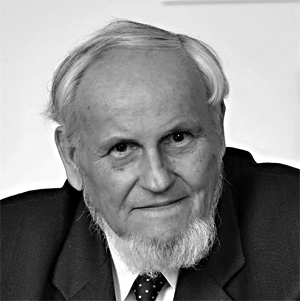
Z przykrością informujemy, że 6 lutego 2020 roku zmarł w wieku 75 lat dr Jan CISAK, polarnik. Znaliśmy go jako niestrudzonego geodetę promującego polskie nazwy dla eksplorowanych i odkrywanych rejonów w Arktyce i Antarktyce. Uczestnik wielu wypraw, w sezonie 1983/84 kierował VI Polską Wyprawą do Stacji Polarnej w Hornsundzie na Spitsbergenie. Tracimy kolejnego dobrego kolegę i przyjaciela.
Msza żałobna zostanie odprawiona w kościele pw. Św. Rafała i Alberta na ul. Gwiaździstej na Marymoncie w piątek 14 lutego o godz. 13:00.
Pogrzeb odbędzie o 14:30 na Powązkach cywilnych w kwaterze 238 (dojście od 6 bramy na ul. Ostroroga).
IASC Cross-Cutting and Working Group Proposals 2020
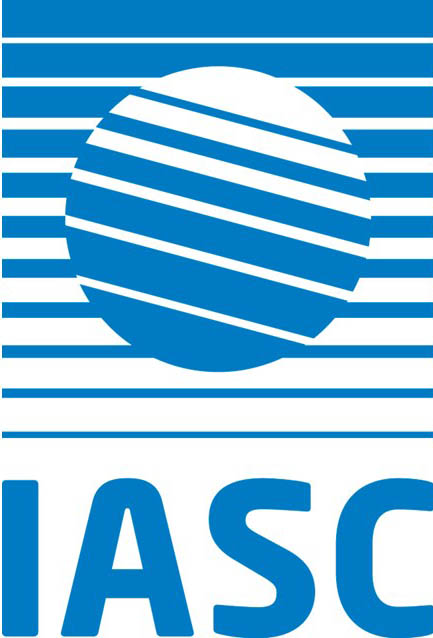 Dear IASC Community,
Dear IASC Community,
This is a reminder that IASC is now receiving proposals for consideration for IASC funding in 2020. Proposals can be limited to one Working Group, relevant to all five, or anything in between. (Note: Working Groups must allocate at least 40% of their budget in cooperation with other Working Groups.) All proposals will be fully discussed and considered at the Working Group meetings at ASSW.
The proposal template is here: https://iasc.info/images/media/print/logo-forms/IASC_Proposal_Template.docx
Please note that while proposals do NOT have to be submitted by WG members, all proposals should be discussed with WG leadership/membership before submission. Cross-cutting proposals should engage all relevant collaborators early in the development phase. When you prepare your proposals, please consider how the activity relates to the Working Group scientific priorities here: https://iasc.info/outreach/news-archive/396-new-iasc-science-work-plans, and the IASC Strategic Plan here: https://iasc.info/strategic-plan. If you are thinking about a proposal, please be proactive in seeking consultation!
The deadline for proposal submission is 1 March 2020.
Best,
Allen
Dr. Allen Pope
IS-600 Akureyri, Iceland
+354 515 5824
rok 2019
- Details
“Do Ziemi Torella”
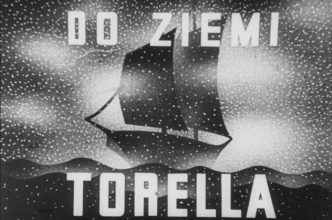 Dr Jacek Szymala z Instytutu Kulturoznawstwa Uniwersytetu Wrocławskiego odnalazł przedwojenny reportaż z polskiej wyprawy na Spitsbergen z 1934 r. Film pod tytułem “Do Ziemi Torella” został wyreżyserowany przez uczestnika wyprawy – Witolda Biernawskiego, a wydawcą była nieistniejąca już wytwórnia Panta Film. W okresie międzywojennym dzieło było prezentowane również za granicą (Norwegia, USA). Po wojnie ślad po filmie zaginął i przez ostanie dziesięciolecia pozycja ta uważana była za zaginioną.
Dr Jacek Szymala z Instytutu Kulturoznawstwa Uniwersytetu Wrocławskiego odnalazł przedwojenny reportaż z polskiej wyprawy na Spitsbergen z 1934 r. Film pod tytułem “Do Ziemi Torella” został wyreżyserowany przez uczestnika wyprawy – Witolda Biernawskiego, a wydawcą była nieistniejąca już wytwórnia Panta Film. W okresie międzywojennym dzieło było prezentowane również za granicą (Norwegia, USA). Po wojnie ślad po filmie zaginął i przez ostanie dziesięciolecia pozycja ta uważana była za zaginioną.
Warto dodać, że “Do ziemi Torella” to jeden z dwóch zmontowanych filmów Biernawskiego w 1935 roku. Drugi pt. “Ku wiecznym lodom Spitsbergenu” prawdopodobnie nigdy nie wszedł na ekrany, być może zostanie jeszcze odnaleziony.
Więcej o wyprawie w 1934 roku można przeczytać w opracowaniu Prof. Piotra Kohlera.
“Tożsamości. Warsztaty w Arktyce”
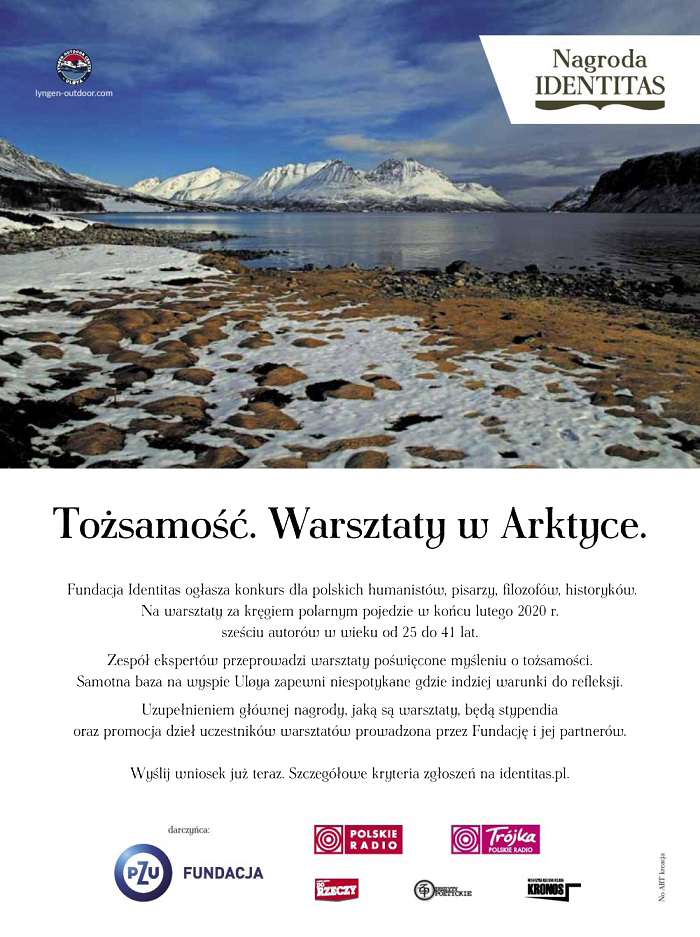
O konkursie:
Fundacja Identitas ogłasza konkurs dla polskich humanistów, pisarzy, filozofów, historyków. Na warsztaty za kręgiem polarnym pojedzie w końcu
lutego 2020 r. sześciu polskich autorów w wieku od 25 do 41 lat.
Zespół ekspertów przeprowadzi zajęcia poświęcone myśleniu o tożsamości. Samotna baza na wyspie Uløya zapewni niespotykane gdzie indziej warunki
do refleksji i pracy twórczej. Uzupełnieniem głównej nagrody, jaką są warsztaty, będą stypendia oraz promocja dzieł uczestników warsztatów prowadzona przez Fundację i jej partnerów.
Nagrodę stanowią a) udział w warsztatach twórczych dla maksymalnie sześciu osób (dalej: “Warsztaty”) oraz b) jedno lub więcej stypendiów. Budżet stypendialny może maksymalnie osiągnąć sumę 30 000 zł.
Zgłoszenia do konkursu oceni zespół w składzie: Renata Chołuj (pisarka, przewodnicząca Jury Nagrody Identitas), Wawrzyniec Rymkiewicz (filozof, tłumacz, wydawca, redaktor naczelny kwartalnika Kronos), Mariusz Cieślik
(prozaik, scenarzysta, dziennikarz, z-ca dyrektora radiowej “Trójki”), Dawid Jung (poeta, redaktor naczelny Zeszytów Poetyckich) oraz założyciel Fundacji Identitas, Tomasz Kaźmierowski.
Termin zgłaszania autorów do tegorocznej edycji Nagrody Specjalnej Identitas upływa 16 grudnia 2019 roku (liczy się data stempla
pocztowego).
Patronami medialnymi “Tożsamości. Warsztatów w Arktyce” są Polskie Radio, kwartalnik Kronos, Zeszyty Poetyckie i tygodnik Do Rzeczy.Szczegóły:
http://identitas.pl/news/2048/
Regulamin:
http://identitas.pl/regulamin-nagrody/
ASSW 2020 - travel support
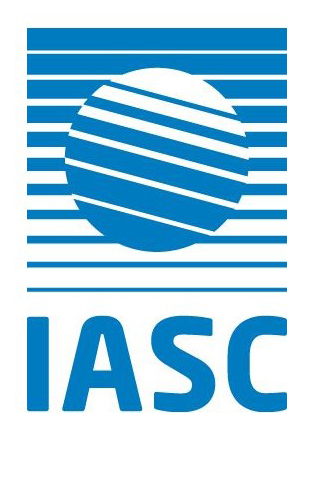
The Association of Polar Early Career Scientists (APECS) in cooperation with the International Arctic Science Committee (IASC) is pleased to announce the availability of travel support for the Arctic Science Summit Week (ASSW) 2020
(27 March - 2 April 2020, Akureyri, Iceland).
Travel support via this process is currently available for:
- Early career researchers up to 5 years past PhD with an Arctic research focus (an allowance will be made for career breaks such as parental leave)
- Arctic researchers of all career stages at Russian institutions and/or focusing on the Russian Arctic
- Indigenous Arctic Experts of all backgrounds and career stages (defined as researchers and /or Indigenous Knowledge holders who are of Arctic Indigenous heritage, in particular those represented by the https://www.arcticpeoples.com/#intro
Further application criteria:
- Active participation in the conference including but not limited to giving an oral or poster presentation in the Arctic Observing Summit 2020 (31 March - 2 April 2020 as part of the ASSW 2020) or organizing / participating in an Arctic science community or business meeting
- Affiliation with an institution / organization in an IASC member country (Austria, Canada, China, Czech Republic, Denmark, Finland, France, Germany, Iceland, India, Italy, Japan, Netherlands, Norway, Poland, Portugal, Russia, South Korea, Spain, Sweden, Switzerland, United Kingdom, United States)
APECS will coordinate the application and distribution process of the funds provided by IASC. We encourage other partner organizations to get in touch with the APECS International Directorate Office at
These travel awards may only be able to cover part of your travel costs and the costs will be reimbursed after the meeting based on receipts that you provide (all grantees can elect to have their registration fees billed to IASC, pre-travel reimbursement may or may not be possible; Indigenous participants with full funding can have their travel paid in advance by IASC).
Please submit your application via this online form by no later than 12 December 2019 at 07:00 am GMT. Late applications will not be considered. No exceptions will be made.
Your application will be evaluated solely on the information you provide via the form. We will not accept other material via email (unless you were asked to provide additional material by the APECS Secretariat). All questions are available on the first page. There is no second page with hidden questions. Note that several of the questions are designed so we know which funding source(s) you qualify for, so please answer all the questions as completely as possible. Should other funding become available with additional requirements, we will announce this and give applicants who have already submitted the opportunity to update their application form. Should you have problems accessing the online form, please contact
If you have any questions please contact the APECS International Directorate Office at
Umowa z Gubernatorem Svalbardu ws. Calypsobyen
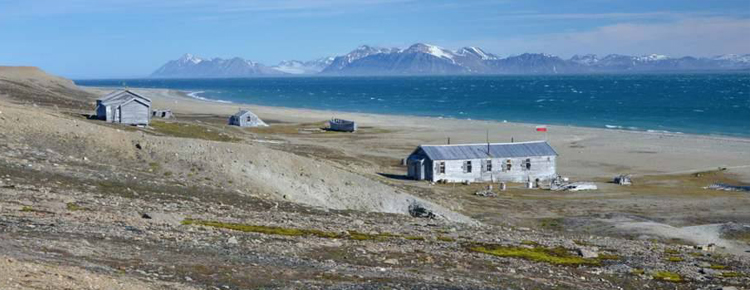
Z przyjemnością informujemy, że została podpisana umowa między Gubernatorem Svalbardu a Uniwersytetem Marii Curie-Skłodowskiej w Lublinie w sprawie dalszego wykorzystywania budynków Calypsobyen (Bellsund, Svalbard) w ramach Wypraw Polarnych UMCS.
Umowa obowiązuje na okres najbliższych 3 lat, zgodnie z obowiązującymi przepisami.
Szczegóły w załączniku.
Umowa pomiędzy Gubernatorem Svalbardu a IGF na zarządzanie i opiekę husami w rejonie Hornsundu
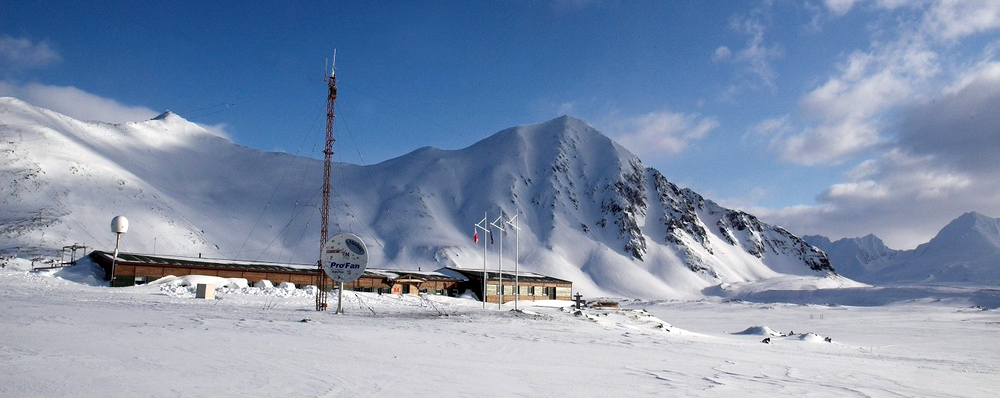
Mamy przyjemność poinformować o zawarciu umowy pomiędzy Biurem Gubernatora Svalbardu a Instytutem Geofizyki PAN regulującej zasady użytkowania husów (chat traperskich) w rejonie fiordu Hornsund.
Muzeum Polarne w Puławach
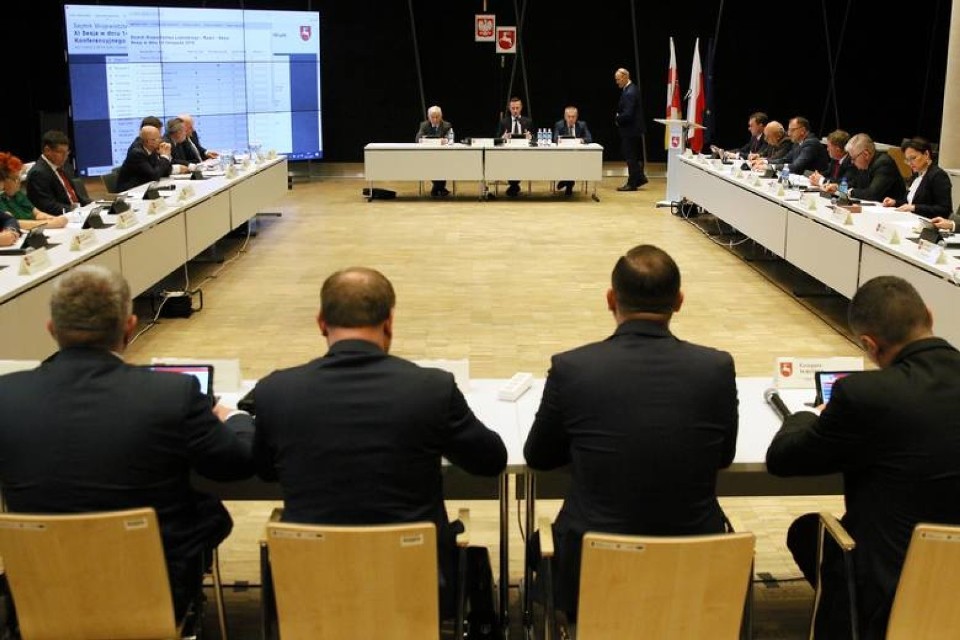
Powstanie Muzeum Badań Polarnych w Puławach ma kosztować 1 mln zł a 75 proc. tej kwoty jest gotowy wyłożyć rząd.
Ministerstwo Kultury i Dziedzictwa Narodowego jest gotowe na muzeum wyłożyć 75 proc. potrzebnych pieniędzy na powstanie i utrzymanie placówki. Pozostałe środki mają pochodzić z kasy województwa i miasta Puławy. - Koszt roczny to 1 milion złotych - dodał marszałek.
Jednym z inicjatorów powstania muzeum jest dr Andrzej Piotrowski z Polskiego Towarzystwa Geologicznego. Przekonywał radnych, że w Polsce nie ma takiego muzeum a w inych krajach takie placówki istnieją. Dodał, że placówka ma mieć znaczenie nie tylko ogólnopolskie, ale może mieć też wpływ na politykę i gospodarkę. - Prowadzenie badań uprawniania nas do starania się o różne rzeczy jak np. dostęp do szlaków morskich. A to konkretne zyski gospodarcze dla Polski - mówił i zaznaczył, że muzeum będzie mogło też korzystać z grantów norweskich.
XXXVIII MIĘDZYNARODOWE SYMPOZJUM POLARNE
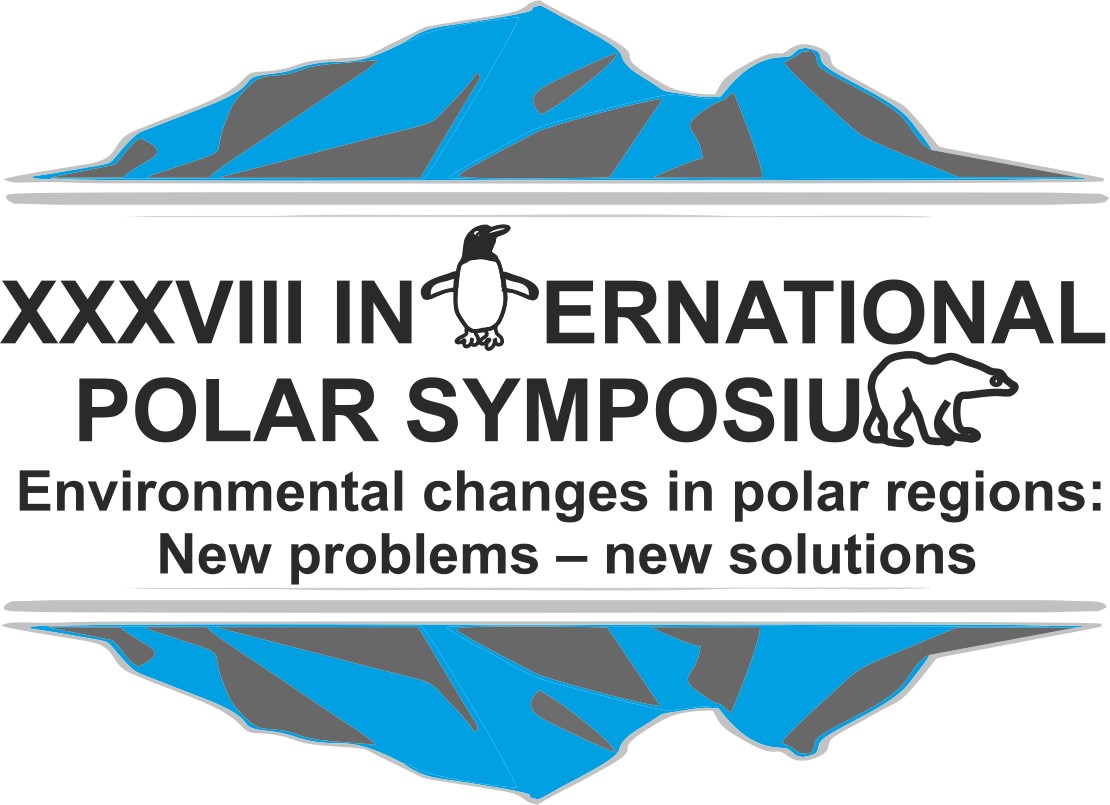 Wydział Nauk o Ziemi i Gospodarki Przestrzennej Uniwersytetu Mikołaja Kopernika w Toruniu oraz Centrum Badań Polarnych przy współpracy z Komitetem Badań Polarnych PAN oraz Polskim Konsorcjum Polarnym w dniach 15-17 października 2020 roku organizuje XXXVIII Międzynarodowe Sympozjum Polarne.
Wydział Nauk o Ziemi i Gospodarki Przestrzennej Uniwersytetu Mikołaja Kopernika w Toruniu oraz Centrum Badań Polarnych przy współpracy z Komitetem Badań Polarnych PAN oraz Polskim Konsorcjum Polarnym w dniach 15-17 października 2020 roku organizuje XXXVIII Międzynarodowe Sympozjum Polarne.
Jest to cykliczna, odbywająca się co dwa lata, prestiżowa konferencja naukowa o szeroko pojętej tematyce polarnej. Od wielu lat cieszy się ona dużym zainteresowaniem naukowców z Polski i ze świata. Jest ona okazją do wymiany doświadczeń, dyskusji i integracji przedstawicieli różnych dyscyplin naukowych, realizujących badania zarówno w Arktyce i Antarktyce, jak i innych regionach świata.
W roku 2020 będzie ona miała wyjątkowy charakter, gdyż towarzyszyć jej będzie Posiedzenie Europejskiej Rady Polarnej, która swoją agendą obejmie sesję plenarną. Ponadto będziemy gościć naukowców z różnych krajów, podczas specjalnych sesji tematycznych.
Będzie to również okazja to uczczenia jubileuszu 45-lecia istnienia Stacji Polarnej UMK na Spitsbergenie.
SCAR COMNAP 2020
ANTARCTIC SCIENCE – GLOBAL CONNECTIONS
31 July – 11 August 2020
Hobart, Tasmania, Australia
The Australian Antarctic Division, the State Government of Tasmania, and the Australian Academy of Science welcomes SCAR and COMNAP participants and Delegates to SCAR COMNAP 2020.
SCAR COMNAP 2020 will include a full program of meetings, symposia, side events and social events including the COMNAP Symposium, public SCAR lecture, and exhibition and poster sessions all structured to encourage SCAR and COMNAP attendee participation. It promises to be a world class event, capitalising on Hobart’s unique status as the gateway to East Antarctica and the home of Australia’s premier Antarctic institutions.
The SCAR Open Science Conference theme “Antarctic Science – Global Connections” recognises the significance of the scientific connections between Antarctica and the global system. It also reflects the strongly connected Antarctic science community and, in the spirit of the Antarctic Treaty system, the importance of collaboration in Antarctic science.
COMNAP Symposium: 2 August 2020
SCAR Open Science Conference: 3-7 August 2020
COMNAP XXXII Annual General Meeting: 3-6 August 2020
SCAR XXXVI Delegates Meeting: 10-11 August 2020
https://www.scarcomnap2020.org/
Kim naprawdę był Anaruk, chłopiec z Grenlandii?
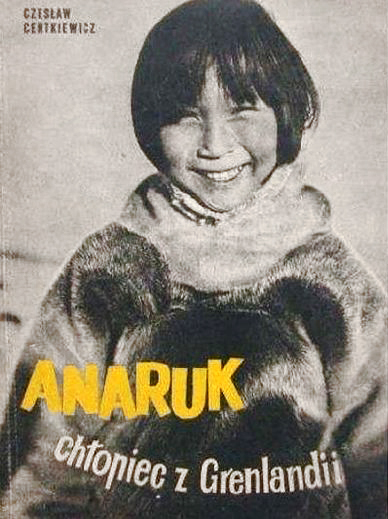
"Anaruk, chłopiec z Grenlandii" przez dekady był lekturą, którą prawie każdy z nas pamięta ze szkoły - zwłaszcza scenę jedzenia mydła. Wszyscy na pewno kojarzymy też okładkę z uśmiechniętym chłopcem, który w domyśle jest głównym bohaterem. Nowe dowody wskazują na to, że książka, która jest nam przedstawiana jako reportaż, ma więcej wspólnego z fikcją niż z literaturą faktu.
Dwójka Polaków - Agata Lubowicka i Adam Jarniewski przeprowadziła dwuletnie śledztwo, które doprowadziło do zaskakujących rezultatów. Okazało się, że "Anaruk" po grenlandzku znaczy...
Kim naprawdę był Anaruk, chłopiec z Grenlandii
Anaruk? Ten chłopiec nie może się tak nazywać!
Arctic Observing Summit 2020: Call for Input: White Papers and Short Statements

Dear Colleagues,The Executive Organizing Committee for the Arctic Observing Summit (AOS) 2020 is seeking input in the form of white papers and short statements for the upcoming Summit to be held at the University of Akureyri, Iceland, March 30 through April 2, 2020.
The overarching theme of the 2020 Summit is Observing for Action. Our records indicate that you previously submitted a white paper/short statement which helped facilitate discussions during the AOS Thematic Working Group Sessions at an earlier Summit and we invite you to again consider a contribution for AOS 2020.
Your input will serve to highlight important data, management, or logistical needs or gaps, explore emerging opportunities, address a current challenge, present new initiatives, or technology that can contribute to Arctic observing or review on-going observing activities or issues that are relevant for the development, application, operation, or support of a sustained Arctic observing network.
White papers/short statements should link to the themes identified for AOS 2020. However, other input on important and relevant topics related to AOS are welcome also under the category of “OTHER: Other high-priority issues for Arctic observing.”Based on recommendations and priorities identified during the 2018 Summit, AOS 2020 will be structured along the following sub-themes:
- Sub-Theme 1: Design, Optimization, and Implementation of the Observing System
- Sub-Theme 2: Observing in Support of Adaptation and Mitigation
- Sub-Theme 3: Observing in Support of Indigenous Food Security and Related Needs
- Sub-Theme 4: Data Interoperability and Federated Search
- Sub-Theme 5: Arctic Observations in the Context of Global Observing Initiatives
Authors may be invited to give a presentation or contribute to working group activities during AOS 2020, and a synthesis of white paper input will inform recommendations and action items adopted at the Summit and conveyed to Arctic Council Working Groups, the Third Arctic Science Ministerial and other local, national, and international bodies overseeing, supporting, or carrying out sustained Arctic observations.
Please consider submitting your contribution by the November 15th deadline, and feel free to let us know if you have any questions.
Best,
The AOS Executive Organizing Committee
Third Polar Data Forum

The 3rd Polar Data Forum will take place in Helsinki, Finland (18-22 November 2019).
The registration deadline is November 10th and more information at http://polar-data-forum.org
Co-convened by the IASC-sponsored Arctic Data Committee (and hosted by the Finnish Meteorological Institute), PDF III will be a two day conference style meeting in support of information exchange, with the remainder of the week using a “hackathon” approach that will build on the development work done in previous Polar Data meetings.
Full program information is on http://polar-data-forum.org
IASC Workshop on the Dynamics and Mass Budget of Arctic Glaciers

In addition to sessions on glacier dynamics and mass balance, the workshop will host a cross-cutting activity by the Cryosphere and Marine Working Groups of IASC on “Glacier-ocean interactions and their impact on Arctic marine ecosystems”. This activity aims to provide an inter-disciplinary forum by bringing together glaciologists, marine ecologists and oceanographers interested in glacier-ocean interactions.
You can register for the workshop and submit your abstracts (max 300 words) by completing this online form (copy paste the following link into your web browser): https://forms.gle/hdk8SekBbfehYKwL7
Registration deadline is November 15, 2019.
Contributions in the form of oral presentations and/or posters are welcome. Presentation will be 15-20 minutes, including discussion. For those who bring a poster, time will be reserved in the program to give a short 2-3 minute introduction to the poster. We plan for two and a half days of talks and poster presentations, as well as open-forum discussions.
For more information on the workshop, how to get there, and important updates, please visit the IASC NAG website: https://nag.iasc.info/workshop
PS: Some travel funds are available for early-career scientists (maximum 5 years since completion of PhD). Information on how to apply will soon become available on the IASC-NAG website.
Nabór kandydatek i kandydatów na UCZESTNIKÓW 43. WYPRAWY POLARNEJ IGF PAN DO POLSKIEJ STACJI POLARNEJ HORNSUND NA SPITSBERGENIE w sezonie 2020/2021

Instytut Geofizyki Polskiej Akademii Nauk w Warszawie ogłasza nabór kandydatek i kandydatów na
UCZESTNIKÓW 43. WYPRAWY POLARNEJ IGF PAN DO POLSKIEJ STACJI POLARNEJ HORNSUND NA SPITSBERGENIE w sezonie 2020/2021
Poszukujemy:
I. Kandydatów na nw. stanowiska w ramach grupy zimującej (całorocznej) 43. Wyprawy Polarnej IGF PAN:
- Geofizyk z doświadczeniem w dziedzinach geofizyki lub elektroniki;
- Meteorolog w szczególności z doświadczeniem w służbie meteorologicznej IMGW;
- Specjalista ds. monitoringu środowiska / hydrochemik w szczególności z doświadczeniem w pracy w laboratorium chemicznym, w obsłudze chromatografu jonowego oraz w pracy w terenie;
- Informatyk z doświadczeniem w zakresie administrowania systemów Linux/Windows i teleinformatyce/łączności internetowej;
- Mechanik w szczególności z umiejętnością obsługi agregatów prądotwórczych i silników wysokoprężnych;
- Konserwator z doświadczeniem w zakresie robót ogólnobudowlanych oraz napraw i konserwacji instalacji sanitarnych, elektrycznych i konstrukcyjnych.
Okres pobytu grupy zimującej w Polskiej Stacji Polarnej Hornsund:
Wyjazd: czerwiec 2020 r.; Powrót: lipiec 2021 r.
II. Kandydatów na nw. stanowiska w ramach grupy letniej 43. Wyprawy Polarnej IGF PAN:
- Pracownik techniczny w szczególności z umiejętnościami w zakresie robót ogólnobudowlanych, stolarki, elektryki, hydrauliki i mechaniki;
- Asystent terenowy z doświadczeniem terenowym (zimowym i górskim) i motorowodnym;
- Administrator Stacji w szczególności z doświadczeniem w zakresie administracji biurowej i obsługi ruchu turystycznego oraz znajomością języka angielskiego;
- Kucharz oraz Asystent kucharza z praktyką w żywieniu zbiorowym.
Okres pobytu grupy letniej w Polskiej Stacji Polarnej Hornsund:
Wyjazd: czerwiec 2020 r.; Powrót: wrzesień 2020 r. z wyjątkiem:- Kucharz: wyjazd: kwiecień/maj 2020 r.; powrót: wrzesień 2020 r.
„Polar Climate and Environmental Change in the Last Millennium”

W imieniu Komitetu Organizacyjnego serdecznie zapraszamy do udziału w III Międzynarodowej Konferencji pt. „Polar Climate and Environmental Change in the Last Millennium”, która odbędzie się w Toruniu w dniach 24–26 września 2020 r.
Celem konferencji jest prezentacja dotychczasowych osiągnięć nauki w zakresie klimatologii historycznej obszarów polarnych na podstawie obserwacji i pomiarów meteorologicznych, historycznych, dendroklimatologicznych, paleolimnologicznych, geofizycznych, geomorfologicznych i innych.
Wszystkie niezbędne informacje, obejmujące historię konferencji, komunikaty, nazwiska ekspertów wygłaszających referaty zamówione, ważne daty, itp. są dostępne na stronie internetowej konferencji https://polarclimate2020.umk.pl/
W imieniu Komitetu Organizacyjnego
Prof. dr hab. Rajmund Przybylak
Uniwersytet M. Kopernika w Toruniu
T-MOSAiC Terrestrial Multidisciplinary distributed Observatories for the Study of Arctic Connections

The EU Horizon2020-funded project Nunataryuk in cooperation with the Association of Polar Early Career Scientists (APECS) and the Terrestrial Multidisciplinary distributed Observatories for the Study of Arctic Connections (T-MOSAiC) are organizing the APECS-Nunataryuk-T-MOSAiC School 2020 on the topic of “Arctic Coastal Adaptation - Capacity building and knowledge exchange across borders” at Abisko Scientific Research Station (Abisko, Sweden) from 21 - 30 April 2020.
- The field school aims to connect indigenous and non-indigenous early career researchers (ECRs) from different scientific disciplines with international experts as well as local experts and stakeholders from Arctic coastal communities to share state-of-the-art and Traditional Knowledge and best practices for adaptation strategies in the Arctic coastal areas to respond to permafrost thaw.
- The field school focuses on different components of the Arctic coastal system and impacts on local communities. The unique combination of social and physical sciences aspects in one field school will provide participants with an exclusive interdisciplinary view, helping them to understand and address challenges caused by changing Arctic coasts from multiple angles.
- The school will provide lectures, workshops, practical hands-on exercises and excursions. International scientists from the Nunataryuk project and T-MOSAiC as well as local stakeholders and experts will be invited as mentors leading the various lectures and activities of the school.
- The school will be open for up to 30 early career researchers from both physical and social science disciplines related to the school topic (focus on PhD students and postdoctoral researchers) from around the world.
Applications are accepted until 31 October 2019 and the successful applicants will be notified by December. To find out more, please visit the APECS-Nunataryuk-T-MOSAiC School website.
This school is partially funded as an IASC Cross-Cutting Activity.
Arctic Circle Assembly – międzynarodowy szczyt polarny

W dniach 10.10-12.10. 2019 w Reykjaviku już po raz kolejny odbędzie się konferencja „Arctic Circle Assembly”. To jedna z największych międzynarodowych imprez arktycznych, gdzie poruszane są tematy polityczne, ekonomiczne i naukowe związane ze światem północy. Warto dodać, że od samego początku Polacy są jej aktywnymi uczestnikami. Tegoroczna sesja tematyczna zorganizowana przez naszych rodaków nosi tytuł „Recent changes of glaciers and their forefields on Svalbard and their environmental consequences in the High Arctic” i odbywa się pod patronatem Polskiego Konsorcjum Polarnego oraz Centrum Badań Polarnych.
https://www.pkpolar.pl/podsumowanie-polskich-aktywnosci-arctic-circle-2018/
Nowe idee rewitalizacji Polskiej Stacji Antarktycznej im. A.B. Dobrowolskiego
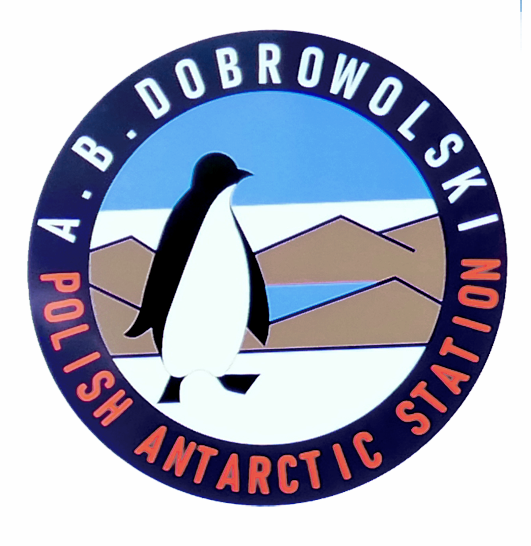 W dniach 30.09-1.10.2019 w Instytucie Geofizyki PAN w Warszawie odbyło się spotkanie polskich naukowców z przedstawicielami Russian VNIIOkengeologia.
W dniach 30.09-1.10.2019 w Instytucie Geofizyki PAN w Warszawie odbyło się spotkanie polskich naukowców z przedstawicielami Russian VNIIOkengeologia.
Podczas warsztatów obie strony przedstawiły referaty dotyczące działalności naukowej na Antarktydzie oraz celowości prowadzenia dalszych badań w rejonie Oazy Bungera – miejsca gdzie znajduje się nie użytkowana od wielu lat Polska Stacja Antarktyczna im. A. B. Dobrowolskiego. Debata zaowocowała podpisaniem porozumienia o podjęciu wspólnych badań naukowych. Rosjanie zaoferowali zabranie kilku polskich naukowców w ramach ich przyszłorocznej wyprawy do Wschodniej Antarktydy. Wyjazd umożliwi naszym rodakom dotarcie do stacji im. Dobrowolskiego, przeprowadzenie bieżących prac remontowych i przygotowanie miejsca do zainstalowania autonomicznej aparatury pomiarowej podczas kolejnych wypraw. Projekt rewitalizacji polskiej stacji planowany jest już od kilku lat. W zeszłym roku polscy badacze nawiązali również współpracę z Australijczykami prowadzącymi badania w tamtych rejonach.
Polska Stacja Antarktyczna im. Dobrowolskiego była początkowo stacją radziecką. Rosjanie wybudowali ją w 1956 roku w ramach prac związanych z Międzynarodowym Rokiem Geofizycznym. Po zakończeniu planowych badań placówka została zamknięta i zakonserwowana. W 1958 roku powstał pomysł przekazania obiektu Polakom, a oficjalne przejęcie stacji nastąpiło w styczniu 1959 roku. Ze względu na bardzo utrudnioną logistykę odbyło się tam zaledwie kilka polskich wypraw. Jak dotychczas wszystkie miały miejsce w zeszłym stuleciu.
Strona stacji:
IX International Forum "Arctic: Today and the Future"
5-7 December 2019, St.Petersburg

Dear Colleagues,
On December 5-7, 2019 the IX International Forum "Arctic: Today and the Future" will be held in St.Petersburg under the auspices of Interregional Public Organization "Association of Polar Explorers". I invite you or your representative of the organization to participate in the Forum. Please, feel free to ask any questions.
Kind regards,
Julia Romanova
Coordinator of the Client
Relations Department
Ph: +7(911)978-14-29
Email:
АНБ19_Application Form_ENGАНБ19_Application Form_ENG
ISAR-6 / Sixth International Symposium on Arctic Research
第6回国際北極研究シンポジウム
2-6 March 2020, Tokyo, Japan
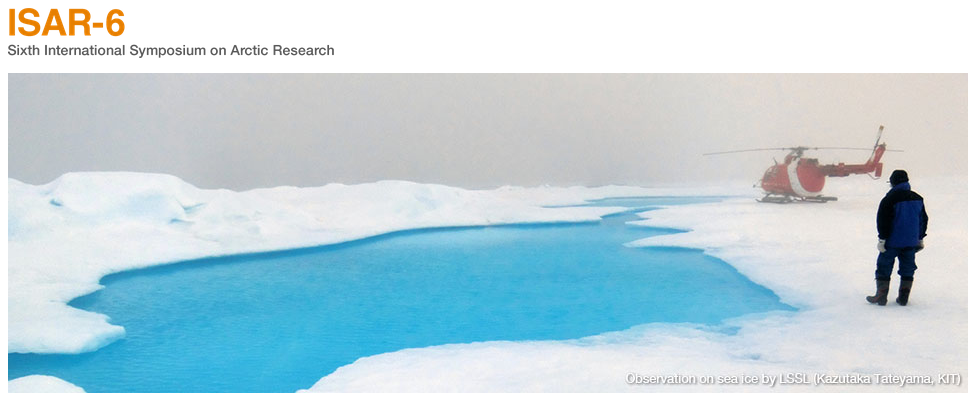
Dear IASC Colleagues,
The organizers of ISAR-6 would like to remind you that the deadline (Oct. 7, 2019) of Call for Abstract for ISAR-6 is closing in.
Please consider submitting an abstract to ISAR-6, and circulate this information to your colleagues using the mailing list you are participating.
Please find the second circular of ISAR-6 linked here:
https://www.jcar.org/isar-6/circular/ISAR6-2ndCircular20190807.pdf
The online abstract submission and registration for ISAR-6 are found at:
https://www.jcar.org/isar-6/
For abstract submission:
https://www.jcar.org/isar-6/abstract/
For registration/accommodation/visa:
https://www.jcar.org/isar-6/registration/
For important dates:
https://www.jcar.org/isar-6/dates/
Travel Grants for Early Career Scientists (Closing on November 30, 2019)
The ISAR-6 will provide grants for Early Career Scientists for participating in ISAR-6. The ISAR-6 SOC will be responsible for the selection in case there are many applicants. You may find a button in the registration procedure for the application of the grant.
3rd Arctic Science Ministerial & ISAR-6
Please note that the organizers of Third Arctic Science Ministerial (ASM3) meeting have agreed to use the 6th International Symposium on Arctic Research (ISAR-6), the Arctic Science Summit Week (ASSW 2020) and the 10th International Congress of Arctic Social Sciences (ICASS X) to solicit scientific contributions and input to the ASM3. A special session “Scientific Contributions to the Third Arctic Science Ministerial (ASM3)” will be arranged at ISAR-6 (https://jcar.org/isar-6/) and similar sessions are planned for ASSW 2020 and ICASS X.
Please let the ISAR-6 secretariat know if you have any comments or questions: isar-secretariat@nipr.ac.jp
4th Polar Ecology Conference “Interactions between Ocean and Terrestrial Ecosystems”
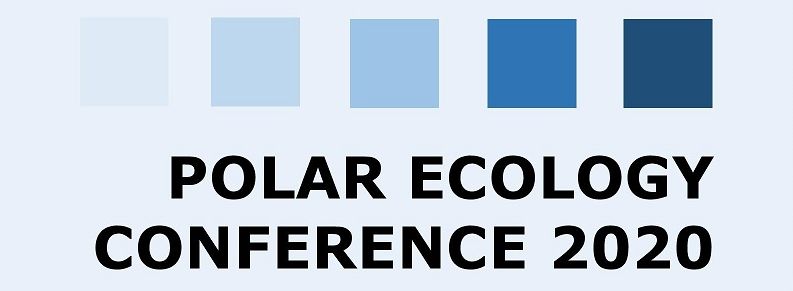
Dear colleagues,
we would like to invite you to the 4th Polar Ecology Conference organised by the Centre for Polar Ecology at University of South Bohemia in České Budějovice, Czech Republic. The conference will be held on Feb 12-15th 2020 and its theme is “Interactions between Ocean and Terrestrial Ecosystems”. However, we accept submission of abstracts from all polar disciplines.
Registration is now open and there are no conference fees but the attendee list is limited to 70 participants. More details and regular updates can be found on the conference website If you have any enquiry, feel free to contact us at:
Hope to see you all in Ceske Budejovice,
Warmest Regards on behalf of the Organizing Committee,
Josef Elster
-------------
Head of the CPE
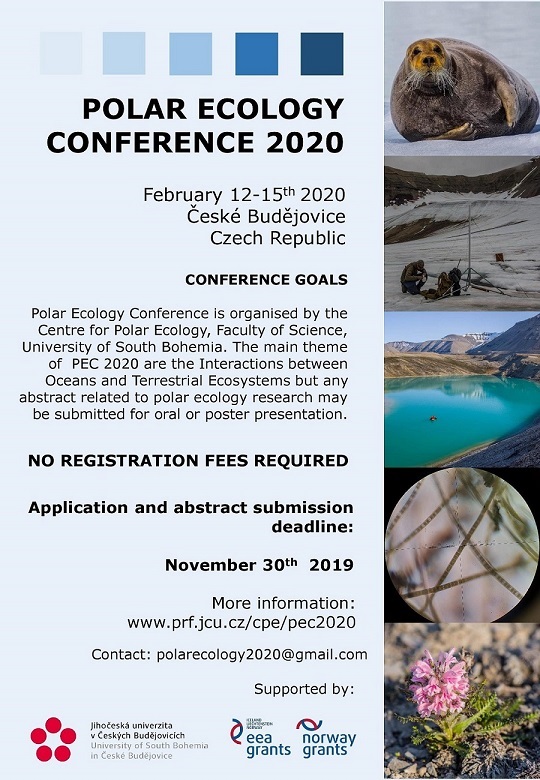
Arctic Observing Summit 2020

Call for Community Input
White Papers and Short Statements
Deadline for submitting input: 18 October 2019
The Executive Organizing Committee for the Arctic Observing Summit (AOS) 2020 is seeking community input in the form of white paper and short statements on the topics under discussion at the Summit.
The 5th biennial AOS will be held in 31 March-2 April 2020 in Akureyri, Iceland as part of Arctic Science Summit Week (ASSW) 2020. The overarching theme of the 2020 Summit is Observing for Action.
Community input and perspectives are invited in the form of white papers and short statements for AOS 2020. Community input can serve to highlight important data, management, or logistical needs or gaps, explore emerging opportunities, address a current challenge, present new initiatives, or technology that can contribute to Arctic observing (including global programs), or review on-going observing activities or issues that are relevant for the development, application, operation, or support of a sustained Arctic observing network. Community input (white papers/short statements) should link to the themes identified for AOS 2020. However, other input on important and relevant topics related to AOS are welcome also under the category of “OTHER: Other high-priority issues for Arctic observing.”
These statements will be used to help guide discussions during the AOS Thematic Working Group sessions. Authors may be invited to give presentations during AOS 2020, and a synthesis of white paper issues will inform recommendations and action items adopted at the Summit and conveyed to Arctic Council Working Groups and other local, national, and international bodies overseeing, supporting, or carrying out sustained Arctic observations.
Based on recommendations and priorities identified during the 2018 Summit, AOS 2020 will be structured along the following sub-themes:
- Sub-Theme 1: Design, Optimization, and Implementation of the Observing System;
- Sub-Theme 2: Observing in Support of Adaptation and Mitigation;
- Sub-Theme 3: Observing in Support of Indigenous Food Security and Related Needs;
- Sub-Theme 4: Data Interoperability and Federated Search;
- Sub-Theme 5: Arctic Observations in the Context of Global Observing Initiatives; and
- Sub-Theme 6: Arctic Observing in Support of Global Actions.
For more information and to submit a white paper or short statement,
go to the submission webpage.
For questions, contact:
Ravi Darwin Sankar |
Maribeth Murray |
Climate change is poised to divide Norway’s largest Arctic island into two
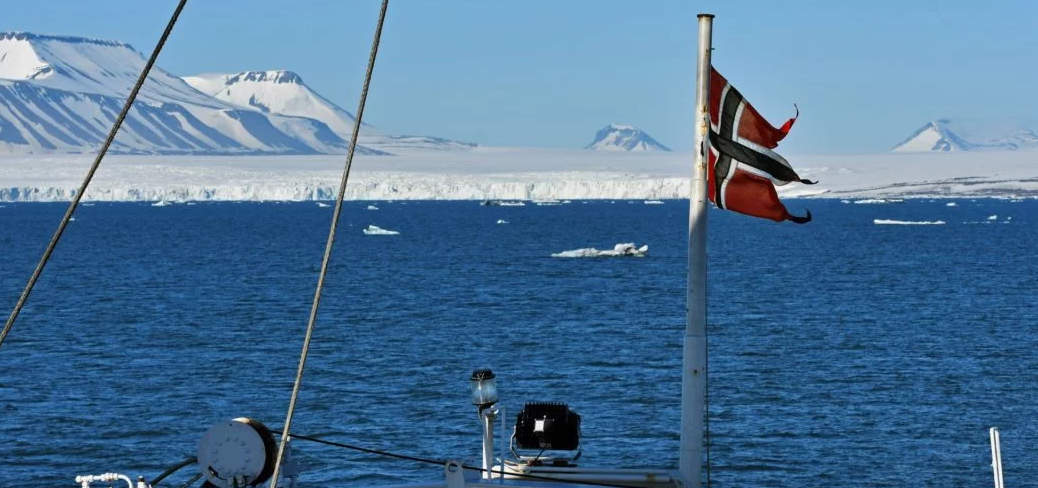
Z przyjemnością zapraszamy Państwa do lektury artykułu zamieszczonego w The Independent Barents Observer, w którym referowane są wyniki polskich badań w Hornsundzie dotyczące zmian na obszarze lodowców Hornbreen-Hambergbreen i możliwości powstania nowej cieśniny łączącej Morze Barentsa i Morze Grenlandzkie.
![]()
“Gender in Polar Research: Gendered field work conditions, epistemologies and legacies”
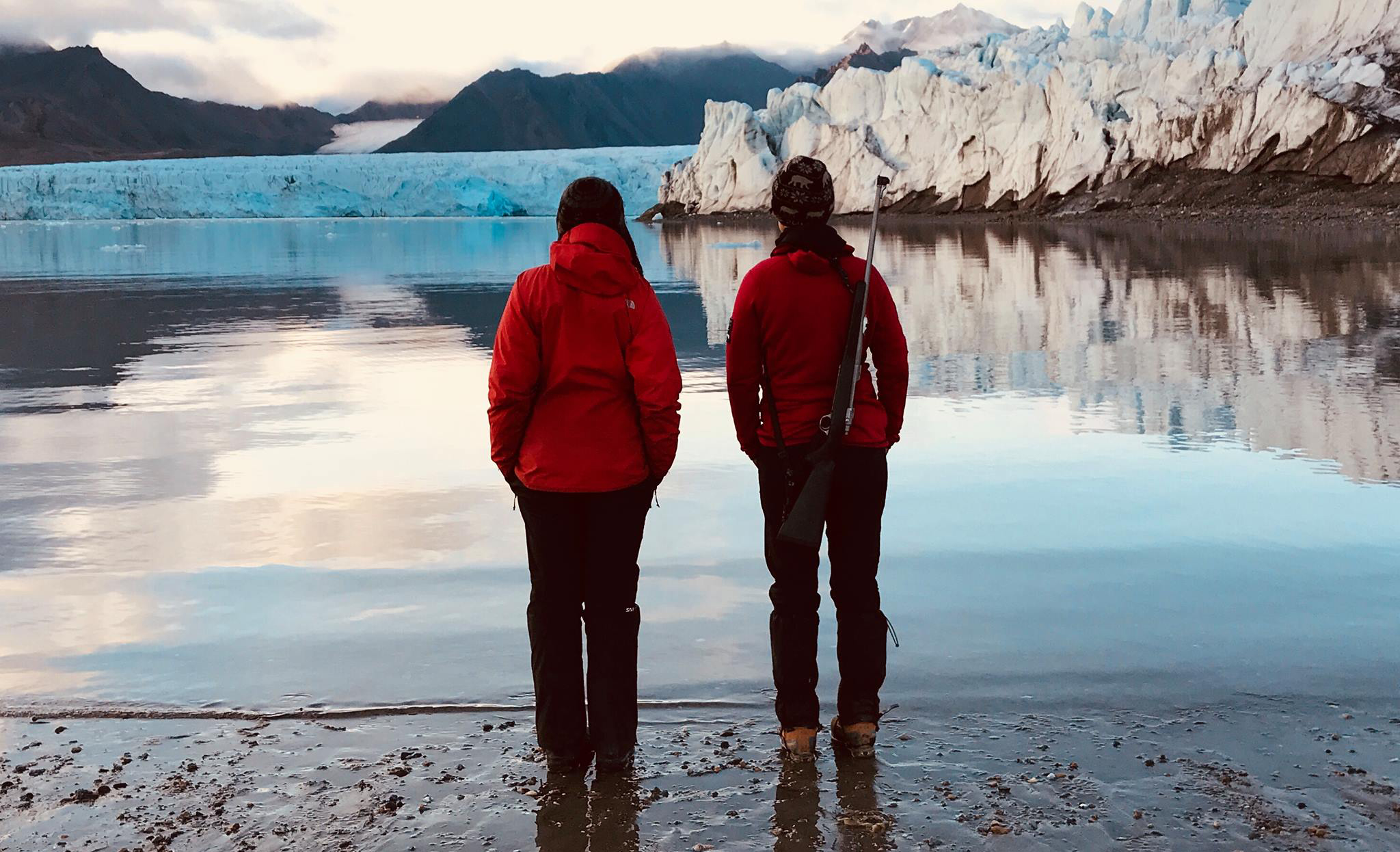
A two-day workshop in the framework of
Arctic Science Summit Week 2020,
Akureyri, Iceland, 29-30(TBC) March 2020
funded by IASC - the International Arctic Science Committee
The IASC Social Sciences and Humanities Working Group (WG), together with IASC’s Cryosphere, Marine, and Terrestrial WGs, invites you to a unique cross-disciplinary workshop attempting to bring together the natural sciences, the social sciences and the humanities in order to discuss and reflect on the gendered nature of Polar research.
The workshop will combine three strands of debate that have thus far not been discussed systematically:
- Doing science in the 21st century in a way that departs from but also pays careful attention to the history of exploration and colonial endeavours as “heroic” and masculine activities – while a masculine image still seems to dominate the methodologies and practices of Arctic and Polar research.
- The still existing gender gap when it comes to female researchers in hard sciences, their career prospects, and their sometimes difficult working conditions as women in the field. Critiques of the gender gap and gendered research work have thus far neglected the diversity aspects of queer and gender minority (LGBTQI) researchers. They face particular challenges whíle working in a still largely heteronormative research environment as it is described for research stations, vessels or tundra/taiga camps.
- The gendered composition of researchers as actors and the gendered spaces of conducting research, including the field sites, have an important impact on research interests, research design, research ethics and epistemology. The gender bias affects the research subject and methodology, and Polar research can learn from and communicate with other fields of science about how to ensure a high standard of equality, sensitivity to issues of marginalization, and ethical production of science.
We invite participants of the ASSW 2020 from natural and social sciences to pop by at the workshop and to join the discussions and break-out groups. Participants will be engaged through alternative formats to gain a maximum of knowledge exchange as well as to map out the state of the art and ideas about where to go from there.
We invite abstracts for a great variety of contributions in conversation with the three themes outlined above: besides as a set of classic academic papers (15 min) and short inputs (5 min) (e.g. sharing experiences or introducing NGOs and movements).
In particular, the workshop facilitates discussions and break-out group work for examining pressing issues in the thematic fields based on individual, group and scholarly experience and activism. Audiovisual or artistic contributions are very welcome. Also join us for volunteering as an organiser of a break-out group.
Submission of proposal and request for funding
Describe your contribution with an abstract of max 250 words and submit at the latest on the 1st of October 2019 to:
We can fund a limited number of participants up to 800 euros each. Priority will be given to early-career researchers. Please, indicate your financial need in your message to us.
For more information see IASSA Working Group Gender in the Arctic
https://gender-arctic.jimdo.com/

Nabór wniosków na korzystanie z infrastruktury sieci INTERACT w 2020 r.
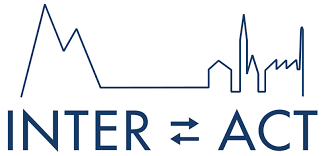 Informujemy, że sieć INTERACT (International Network for Terrestrial Research and Monitoring in the Arctic) ogłosiła nabór wniosków na wykorzystywanie infrastruktury stacji badawczych zrzeszonych w ww. sieci (w tym do Polskiej Stacji Polarnej Hornsund na Spitsbergenie, jak również do innych stacji położonych w Europie, Rosji i Ameryce Płn. związanych z badaniami i monitoringiem Arktyki).
Informujemy, że sieć INTERACT (International Network for Terrestrial Research and Monitoring in the Arctic) ogłosiła nabór wniosków na wykorzystywanie infrastruktury stacji badawczych zrzeszonych w ww. sieci (w tym do Polskiej Stacji Polarnej Hornsund na Spitsbergenie, jak również do innych stacji położonych w Europie, Rosji i Ameryce Płn. związanych z badaniami i monitoringiem Arktyki).
Konkurs dotyczy projektów, których realizacja planowana jest pomiędzy kwietniem a sierpniem 2020 r.
Termin składania wniosków upływa w dniu 8 października 2019 roku.
Szczegóły dotyczące konkursu można uzyskać pod poniższym linkiem: https://eu-interact.org/accessing-the-arctic/tacall/ lub poprzez bezpośredni kontakt z koordynatorem sieci INTERACT, p. Hannele Savelą (
Jednym z warunków uzyskania finansowania jest korzystanie z infrastruktury należącej do innego kraju niż ta, z którego pochodzi osoba aplikująca. Oznacza to, że naukowcy z Polski nie mogą aplikować o sfinansowanie dostępu do Polskiej Stacji Polarnej Hornsund, mogą to natomiast robić naukowcy z zagranicy. W związku z powyższym, zwracamy się z prośbą o przekazanie informacji o konkursie Państwa kolegom i współpracownikom z instytucji naukowych z zagranicy (treść informacji w wersji angielskiej poniżej). Być może zachęci ich to do skorzystania z oferty dostępu do Polskiej Stacji Polarnej Hornsund na Spitsbergenie.
Third Polar Data Forum Helsinki 2019

The Third Polar Data Forum will be hosted by the Finnish Meteorological Institute in Helsinki from November 18th to 22nd, 2019.
The call for abstracts has been extended from 16 August, 2019 to 6 September, 2019.
Abstracts can be submitted through the Forum website at https://polar-data-forum.org/
Themes of interest include:
* Polar community and network building
* Data discovery and federated search
* All aspects of data interoperability (syntactical, structural, semantic, social)
* Standards and protocols to improve data access
* Analysis of user needs
* Enabling data reuse for multiple audiences
* Ethical utilization of data derived from Indigenous knowledge and community based monitoring
* Data management for polar social science and humanities
* Cloud computing and other advanced analytical methods and platforms (i.e. machine learning, AI)
* Sensor webs and observing systems
* Critical studies on polar data management (e.g. Science and Technology Studies)
* Recognition and attribution in data systems
* Data management for major projects (e.g. Southern Ocean Observing System, MOSAiC, Arctic Supersites etc.)
* Data policy
* Other themes related to polar data broadly defined (i.e. including information and knowledge)
More information about the 3rd Polar Data Forum:
Maciej Seweryn Zalewski
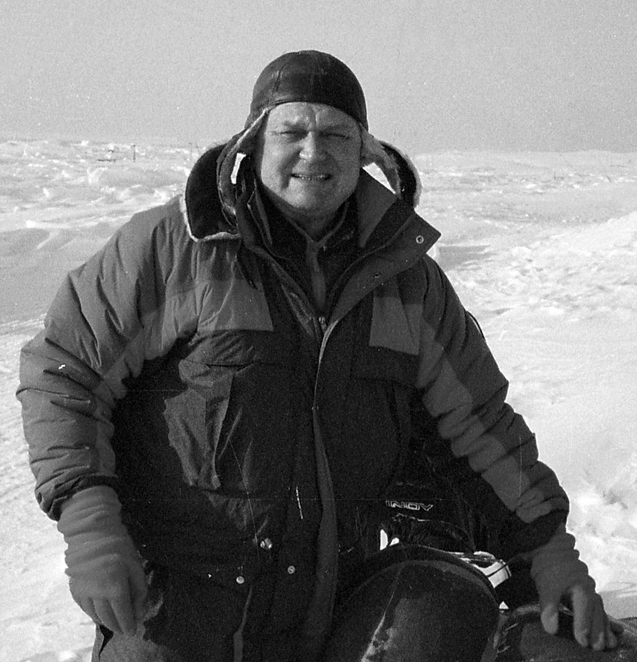 7 sierpnia 2019 roku odszedł od nas do Wieczności w wieku 87 lat dr inż. Maciej Seweryn Zalewski – polarnik, jeden z budowniczych Polskiej Stacji Polarnej na Spitsbergenie w 1957 roku, wieloletni Kierownik Zakładu Badań Polarnych i Morskich Instytutu Geofizyki Polskiej Akademii Nauk. Był także Kierownikiem Ekspedycji do Polskiej Stacji im. Antoniego Dobrowolskiego w Oazie Bungera na Antarktydzie w roku 1965 oraz Drugiej Ekspedycji do Polskiej Stacji im. Henryka Arctowskiego na Wyspie King George (Antarktyka) w roku 1978. Wieloletni Sekretarz Naukowy, a później Honorowy członek Komitetu Badań Polarnych przy Prezydium Polskiej Akademii Nauk.
7 sierpnia 2019 roku odszedł od nas do Wieczności w wieku 87 lat dr inż. Maciej Seweryn Zalewski – polarnik, jeden z budowniczych Polskiej Stacji Polarnej na Spitsbergenie w 1957 roku, wieloletni Kierownik Zakładu Badań Polarnych i Morskich Instytutu Geofizyki Polskiej Akademii Nauk. Był także Kierownikiem Ekspedycji do Polskiej Stacji im. Antoniego Dobrowolskiego w Oazie Bungera na Antarktydzie w roku 1965 oraz Drugiej Ekspedycji do Polskiej Stacji im. Henryka Arctowskiego na Wyspie King George (Antarktyka) w roku 1978. Wieloletni Sekretarz Naukowy, a później Honorowy członek Komitetu Badań Polarnych przy Prezydium Polskiej Akademii Nauk.
Jego życiowym motto były słowa Alberta Einsteina
„Osobowość człowieka kształtuje się nie przez piękne słowa, lecz pracą i własnym wysiłkiem”
Dla wielu z nas odszedł człowiek legenda polskiej polarystyki…
International Symposium on Plastics in the Arctic and Sub-Arctic Region
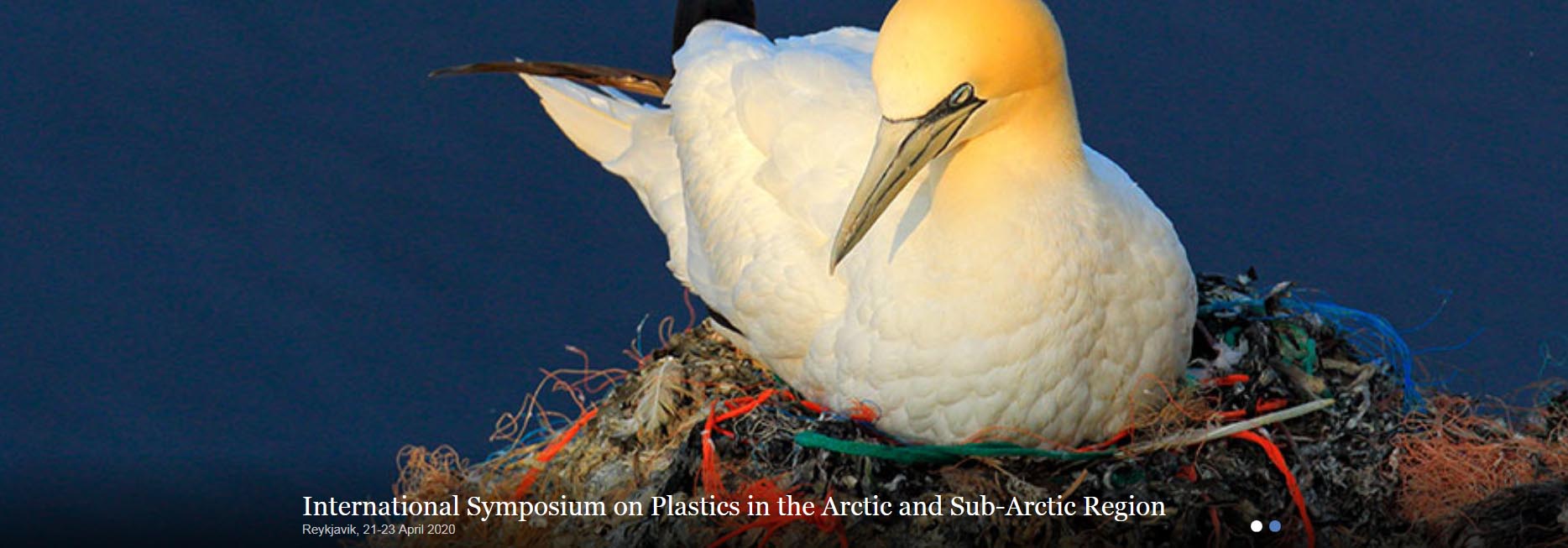
Registration and call for abstracts
Reykjavik, 21-23 April 2020
Call for Abstracts is now open and a direct link to the abstract submissions form is here. The deadline for abstract submissions is 1 December 2019.
Registration is now open and a direct link to the registration site is here. The deadline for an early bird registration is 30 September 2019.
Iceland holds the Chairmanship of the Arctic Council from May 2019 to May 2021 and will during its chairmanship put emphasis on discussing and promoting ways and means to reduce the impact of plastics on the Arctic ocean. This emphasis will be reflected in the work of the Arctic Council during the period where Iceland intends to stage an international symposium on plastics in the Arctic and Sub-Arctic region in Reykjavik from 21-23 April 2020.
The symposium will be co-hosted by the Government of Iceland and the Nordic Council of Ministers in collaboration with the International Council for the Exploration of the Sea (ICES), UNEP, OSPAR, IOC UNESCO, IASC, Harvard Kennedy School and PAME, a working group of the Arctic Council. The symposium is expected to provide a most relevant update on plastics in the region, its impact on the marine environment and possible solutions.
The symposium program outline, registration and call for abstracts can be found on the symposium website: www.arcticplastics2020.is
Feel free to share with your respective communities!
Władek Nankiewicz
W imieniu dużej grupy polarników spitsbergeńskich składam serdeczne kondolencje rodzinie zmarłego Władka wierząc, że na długo pozostanie jeszcze w naszej pamięci.
Piotr Głowacki
5 czerwca na cmentarzu na Bródnie w Warszawie pożegnaliśmy tragicznie zmarłego polarnika Michała Sawickiego
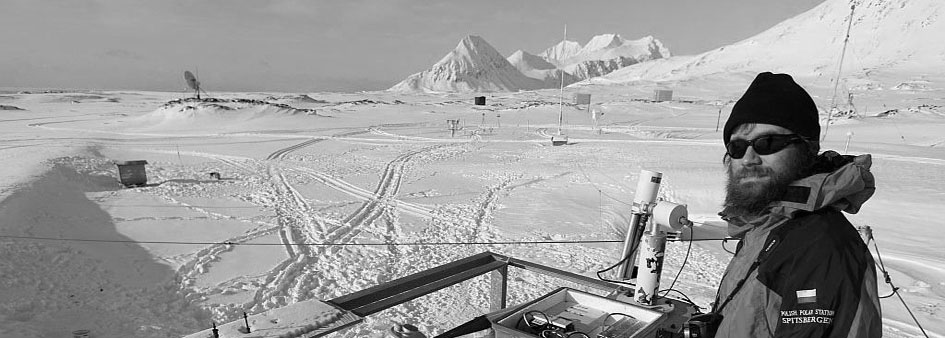
W uroczystości pogrzebowej oprócz pracowników IGF PAN uczestniczyło też wielu polarników, którzy wraz z Michałem pracowali na Spitsbergenie. Słowo pożegnalne nad w ich imieniu wygłosił prof. Piotr Głowacki
Pożegnanie Ś.P. Michała Sawickiego
Pogrążona w smutku i żalu Rodzino.
My polarnicy też, jako „wielka rodzina polarna” przyszliśmy dziś pożegnać Michała, który opuścił za wcześnie nas na zawsze w 4 dni po swoich 44 urodzinach.
Liczba polarników, którzy zimowali w Stacji to prawie 300 osób, w tym niektórzy spędzili tam po kilka lat, jednym z nich był Ś.P. Michał.
Ten pierwszy tak tragiczny wypadek w historii Polskiej Stacji Polarnej na Spitsbergenie przyjmujemy ze smutkiem, ale i wielką pokorą dla niedającej się całkiem okiełznąć przyrody tej dalekiej i zimnej krainy.
Pamiętam Michała jak po raz pierwszy został zakwalifikowany na wyprawę w 2001 roku i wielką troskę jego rodziców o niego, tak przed jak i w trakcie pierwszego zimowania. Ojca wypytującego szczegółowo o techniczne aspekty udziału Michała w ekspedycji i matkę pilnującą drobiazgowo, aby zamówić w kantynie stacyjnej dostateczną ilość soków i witamin.
Michał miał już wówczas dobrze określony cel swojej dalekiej i ekscytującej podróży.
Dobrze wypełniane tam przez Michała zadania dawały mu szansę na kolejne powroty w ten fascynujący rejon, a Michał wykorzystywał swoje kompetencje oraz umiejętności będąc regularnie, co trzy lata uczestnikiem kolejnych wypraw.
Po powrocie z trzeciej wyprawy został zatrudniony w Centralnym Laboratorium Geofizycznym w Belsku.
W przedostatniej jego wyprawie w roku 2010, gdzie grupa zimująca liczyła tylko 7 osób, w tym po raz pierwszy eksperymentalnie kierowała wyprawą kobieta zabierając dwie dodatkowe polarniczki, – z racji doświadczenia powierzono Michałowi funkcję zastępcy kierownika wyprawy.
Po powrocie Michał zdecydował się na zmianę swoich planów życiowych, ale tzw. „choroba polarna” po 6 latach okazała się silniejsza od stabilizacji i życia rodzinnego. Widać było jak cieszył się tym piątym wyjazdem długoterminowym do Arktyki, pokazując zakamarki statku ekspedycyjnego swojemu małemu synkowi przed wypłynięciem w czerwcu ubiegłego roku.
Ostatni raz z Michałem widziałem się nie tak dawno, bo w połowie kwietnia w Stacji. W rozmowach widziałem, że Michał stał się w pełni dojrzałym, rozsądnym, odpowiedzialnym i przewidującym człowiekiem, pełnym realistycznych planów na przyszłość.
Dlatego też wiadomość, jaka dotarła do mnie i nas polarników w przedpołudniowy słoneczny dzień 19 maja, była dużym wstrząsem i przyjęliśmy ją z niedowierzaniem. Utrata osoby Michała zżytej bardzo grupy polarników jest dla nas wielką wyrwą, a jego osoba pozostanie na długo w naszej pamięci.
Prof. dr hab. Piotr Glowacki
. . .
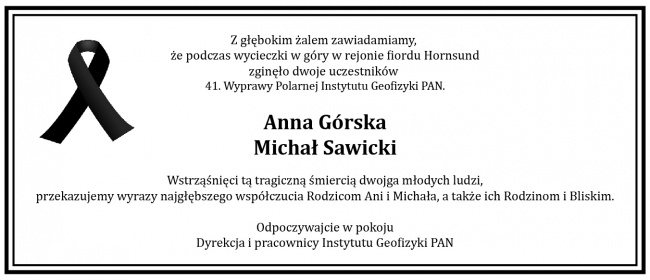
Dr Jerzy Burzyk
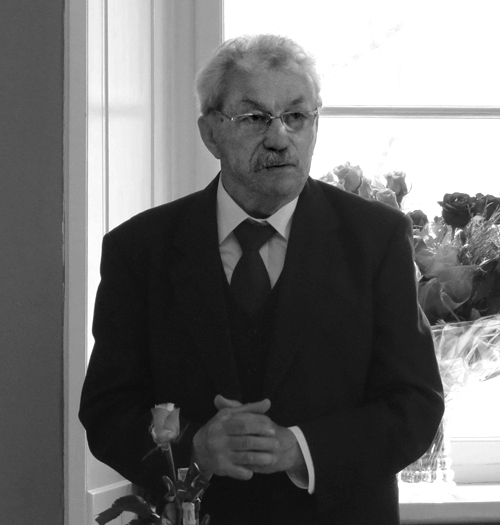
W poniedziałek 6 maja pożegnaliśmy na cmentarzu w Koszęcinie naszego Kolegę.
Dr Jerzy Burzyk uczestnik XVI Wyprawy PAN na Spitsbergen zmarł 2 maja 2019 roku w wieku 80 lat.
Jurka zapamiętaliśmy jako człowieka niezwykle przyjaznego, uczynnego i bezkonfliktowego. Pełniąc funkcję wysoko kwalifikowanego obserwatora
środowiskowego. Zapoczątkował w Stacji Polarnej w Hornsundzie stały monitoring śledzenia zmian koncentracji wybranych metali ciężkich w opadach i ciekach w rejonie Spitsbergenu południowego. Swoją pasję badania obszarów polarnych zaraził również syna Macieja, uczestnika kolejnych wypraw na Spitsbergen.
Pamięć po naszym koledze Jurku pozostanie na długo w naszej pamięci.
Final Report of the 2nd Arctic Science Ministerial available
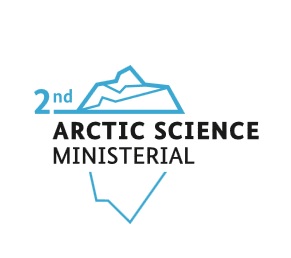
Dear Colleagues,
I am pleased to inform you that the final report of the 2nd Arctic Science Ministerial (ASM2) “CO-OPERATION IN ARCTIC SCIENCE – CHALLENGES AND JOINT ACTIONS” is now available on the ASM2 website. Please go to https://www.arcticscienceministerial.org/files/190402_ASM2_Bericht_V2_bf.pdf to download the report.
With best regards
Volker Rachold
Head, German Arctic Office
Alfred Wegener Institute, Helmholtz Center for Polar and Marine Research
ARCTIC SCIENCE SUMMIT WEEK 2020

27 March - 2 April 2020
AKUREYRI, ICELAND
The International Arctic Science Committee IASC invites the international Arctic community to joint the Arctic Science Summit Week 2020 (ASSW2020) to be held in Akureyri, Iceland, on
27 March - 2 April 2020.
Hosted by the Icelandic Centre for Research, Rannís, and the University of Akureyri, the ASSW 2020 will be an important part of the Icelandic Chairmanship of the Arctic Council.
Program Overview
27 March 2020 | Open Science Day
28 - 30 March 2020 | IASC Business Meetings & Partners Meetings
31 March - 2 April 2020 | 5th Arctic Observing Summit (AOS)
Arctic Akureyri
Most of the ASSW events will take place in the facilities of the University of Akureyri.
The University of Akureyri (UNAK) was established in 1987 and since that time, it has been constantly developing and growing as one of the main educational institutions in Iceland. It offers PhD and masters' opportunities to postgraduate students in a wide range of subjects and is recognized for the excellence of its faculty in the area of Arctic research and education. The Master's degree in Polar Law is the first of its kind and unique in the world.
Through its programs and practices, UNAK seeks to foster interdisciplinary knowledge and collaboration in the Arctic and to improve the livelihoods of Arctic communities.
In addition, several institutions working on a wide range of Arctic issues are currently based in Akureyri, enhancing knowledge and awareness on Arctic matters, such as the IASC Secretariat, the Arctic Council's working groups CAFF and PAME, the Stefansson Arctic Institute, the Icelandic Arctic Cooperation Network, the Polar Law Institute, Arctic Portal and many others. Check out more at Arctic Akureyri's website.
Arctic air pollution workshop : pollution sources and environmental impact 3 - 4 June 2019, Milan, Italy
Dear members of the Ny-Ålesund Atmosphere flagship community,
Please find attached announcement of the Arctic air pollution workshop in Milan. The workshop is devoted to the project "Strengthening cooperation on air pollution research in Svalbard", but the second day is planned for networking and planning of further joint campaigns in Svalbard and in the Arctic in general.
I hope you could spread the word among other scientists who is working with the topic of Arctic air pollution and meteorology.
Best regards,
Alena Dekhtyareva
Arctic Air Pollution workshop announcement 3-4 June 2019 Milan.pdf
Workshop Announcement and Call for Nominations: Microbial Threats in the Arctic

WORKSHOP ANNOUNCEMENT AND CALL FOR NOMINATIONS
Submit a nomination
Deadline: 5 April 2019
An international workshop on Understanding and Responding to Global Health Security Risks from Microbial Threats in the Arctic will be held on November 6-7, 2019 in Hanover, Germany.
This activity is being planned as a cooperative effort among three boards of the U.S. National Academies of Sciences, Engineering, and Medicine [the Polar Research Board, the Board on Life Sciences, and Board on Global Health] in partnership with the InterAcademy Partnership and the European Academies Science Advisory Council.
Workshop Plans. This workshop will bring together an international, interdisciplinary group of experts to explore what is known, and what critical knowledge gaps remain, regarding existing and possible future risks of harmful infectious agents emerging from thawing Arctic environments. Discussions will encompass topics such as:
- known risks such as anthrax, and other unknown human and animal microbial health risks that could conceivably be harbored in ice and permafrost;
- key research needs and critical tools for improving observations and surveillance, to advance our understanding of these risks, and to develop effective early warning systems
- relevant lessons learned from efforts to address emerging/re-emerging microbial threats elsewhere in the world; and
- opportunities to facilitate interagency and international cooperation on such efforts, and to build upon existing programs and platforms for cooperation.
Seeking Nominations. This workshop will be planned and facilitated by a small appointed committee with expertise in areas such as: arctic climate change and terrestrial ecology (soil, plants, animals); permafrost monitoring and modeling; emerging and re-emerging microbial threats; human and zoonotic infectious disease dynamics; and public health surveillance and response systems. Additional information about the workshop and a form to submit nominations can be found here. The submission deadline for these nominations is 5 April 2019. Suggestions for people to consider as workshop speakers are also welcome, and can be provided here. Self-nominations are welcome. This event will be open to the public, but space will be limited.
This event is made possible with support from the US Centers for Disease Control and Prevention (CDC) National Center for Emerging and Zoonotic Infectious Diseases, the USAid Emerging Pandemic Threats Program, the Volkswagen Foundation, and the National Academies’ Raymond and Beverly Sackler Science Fund.
Posiedzenie inauguracyjne Komitetu Badań Polarnych przy Prezydium PAN na kadencję 2019-2022
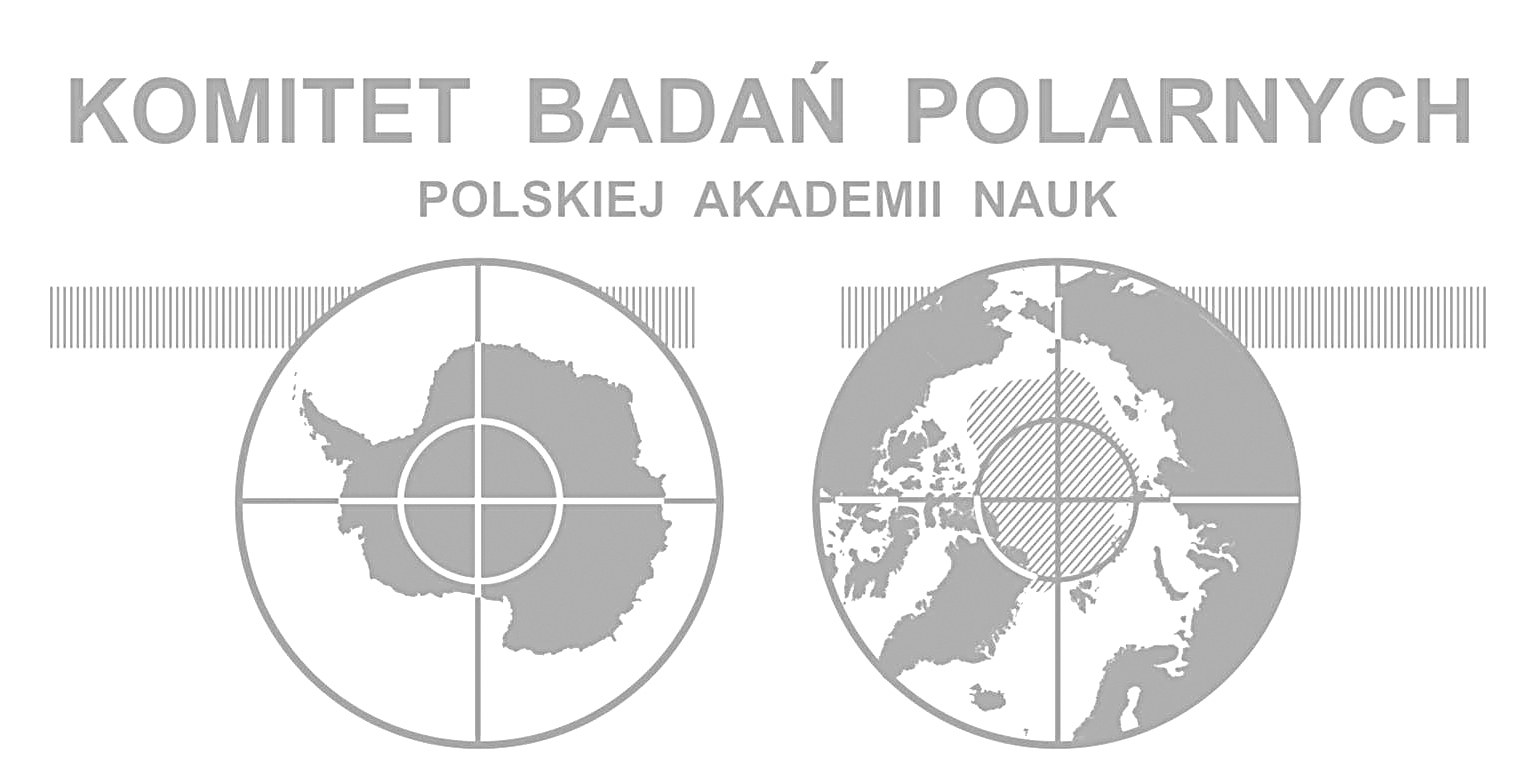
Posiedzenie inauguracyjne Komitetu Badań Polarnych przy Prezydium PAN na kadencję 2019-2022 obdędzie się 19 marca 2019 o godz. 11-tej; Pałac Staszica w Warszawie, ul. Nowy Świat 72, (Sala Staszica)
Program posiedzenia:
- Wręczenie powołań członkom Komitetu.
- Wręczenie powołania przewodniczącemu Komitetu.
- Informacja o złożonych deklaracjach (akcesie) do Komitetu Badań Polarnych przez członków rzeczywistych i członków korespondentów PAN.
- Plan działalności Komitetu w kadencji 2019-2022 – propozycje Przewodniczącego.
- Struktura Komitetu w odniesieniu do nowych zadań.
- Wystąpienia przedstawicieli Ministerstw oraz przedstawienie oczekiwań resortów wobec Komitetu lub jego zespołów, jako ciała eksperckiego.
- Dyskusja dotycząca realizacji planowanych zadań.
- Przerwa
- Wybór wiceprzewodniczących Komitetu.
- Wybór sekretarza Komitetu.
- Wybór pozostałych członków Prezydium Komitetu.
- Sprawy różne i wolne wnioski.
Posiedzenie inauguracyjne KBP 2019
Publikacja EU-PolarNet White Papers

The five EU-PolarNet White Papers coming out of the workshop are:
- White Paper No. 1: The coupled polar climate system: global context, predictability and regional impacts
- White Paper No. 2: Footprints on Changing Polar Ecosystems: Processes, Threats, Responses and Opportunities for Future Generations
- White Paper No. 3: Managing human impacts, resource use and conservation of the Polar Regions
- White Paper No. 4: The Road to the Desired States of Social-ecological Systems in the Polar Regions
- White Paper No. 5: Advancing operational informatics for Polar Regions
Download the full report including all EU-PolarNet White Papers here.
Download the summary of the EU-PolarNet White Papers here.
https://www.eu-polarnet.eu/news-and-events/conferences-and-workshops/white-paper-workshop/
Profesor Krzysztof Birkenmajer
„Gdy pojawiają się pierwsze jesienne przymrozki i Planty krakowskie spowiją gęste mgły, a chodniki zaścieła dywan martwych liści, wracam myślami do śniegów Spitsbergenu”
Krzysztof Birkenmajer POLARNE DROGI I BEZDROŻA
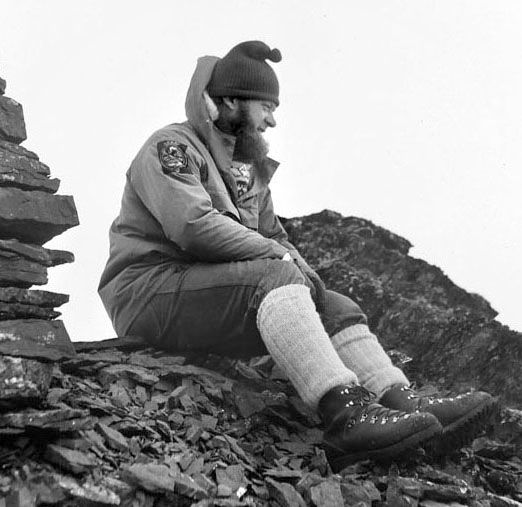
23 lutego 2019 r., po krótkiej, ciężkiej chorobie odszedł do Wieczności w wieku 90 lat
Pan Profesor Krzysztof Birkenmajer
Geolog - światowej sławy Badacz polarny wielu obszarów Arktyki i Antarktyki, Pienin oraz Tatr. Członek Rzeczywisty Polskiej Akademii Nauk, Honorowy Przewodniczący Komitetu Badań Polarnych PAN, a przede wszystkim Mentor, Doradca i Przyjaciel wielu z nas - Legenda Polskiej Polarystyki.
Cześć Jego Pamięci!
(Fot. Krzysztof Małkowski)
ASSW2019: Funding Available for Indigenous, Russian/Russian-focused, T-MOSAiC & Early Career Participants
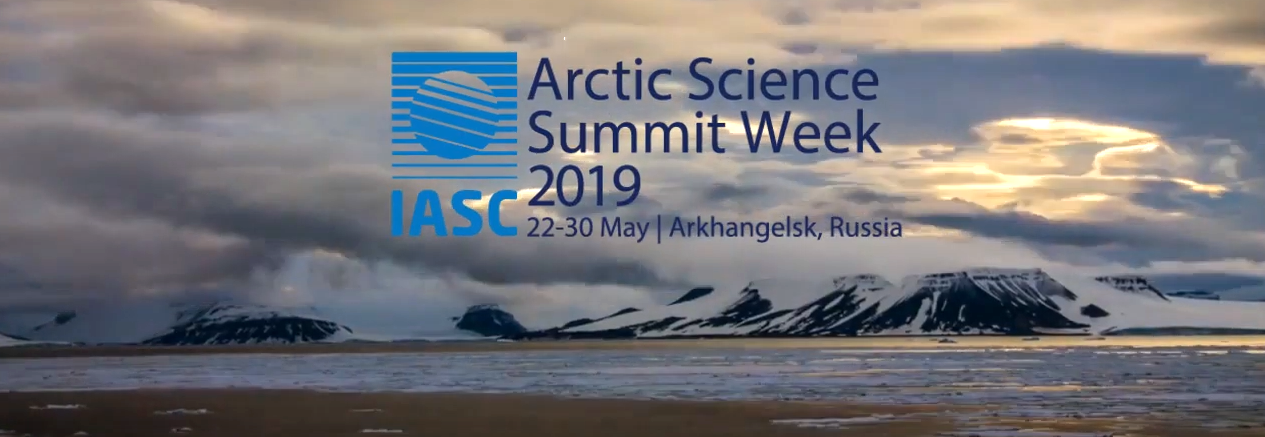
Funds available to attend ASSW2019
The Association of Polar Early Career Scientists (APECS) in cooperation with the International Arctic Science Committee (IASC) is pleased to announce the availability of travel support for the Arctic Science Summit Week (ASSW) 2019 (22-30 May 2019, Arkhangelsk, Russia).
Travel support via this process is currently available for:
- Early career researchers up to 5 years past PhD with an Arctic research focus (an allowance will be made for career breaks such as parental leave)
- Arctic researchers of all career stages focusing at Russian institutions and/or focusing on the Russian Arctic
- Indigenous Arctic experts of all backgrounds and career stages (defined as researchers and Indigenous knowledge holders who are of Arctic Indigenous heritage, in particular those represented by the Arctic Council Permanent Participants)
- In addition, special limited travel support for early career researchers who are interested in attending the 4th T-MOSAiC Workshop during ASSW 2019.
Full details are available and the application form are on the APECS website.
Important ASSW2019 Dates
- 28 February: Early Registration Deadline
- 28 February: Abstract Submission Deadline
- 8 March: Community Meetings Request Deadline
- 31 March: Visa Letter Application Deadline (Note: US, Canada, UK, & Japanese nationals should apply earlier if possible.)
- 15 May: Registration Deadline
- 22 May: ASSW2019 begins!
You can register on the website en.assw2019.science, and If you have any questions about the registration, please contact the organizers at
Powolanie komitetów problemowych PAN na lata 2019-2022
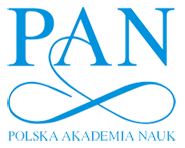
Prezydium PAN na Posiedzeniu, które odbyło się w dn. 22.01.2019, powołało komitety problemowe PAN, w tym Komitet Badań Polarnych PAN.
mgr Barbara Barzycka stypendystką IASC w Cryosphere Working Group
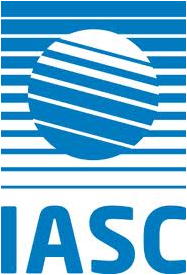
Z wielką przyjemnością informujemy iż mgr Barbara Barzycka - doktorantka Interdyscyplinarnych Studiów Polarnych w Centrum Studiów Polarnych - została w ramach konkursu IASC Fellowship Program stypendystką IASC w Cryosphere Working Group.
Szczegóły dotyczącej tegorocznej edycji konkursu są na stronie:
https://iasc.info/outreach/news-archive/503-congratulations-to-the-2019-iasc-fellows.
W imieniu KBP PAN przekazujemy serdeczne gratulacje!
Zbyszek Wciślak
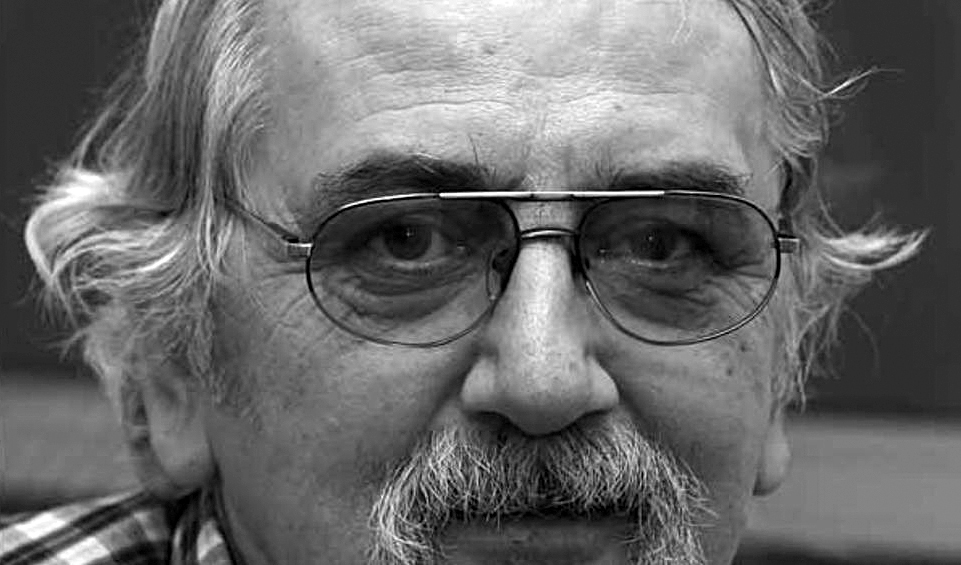 Szanowni Polarnicy,
Szanowni Polarnicy,
Z wielkim smutkiem i żalem muszę Was poinformować, że odszedł od nas Zbyszek Wciślak - meteorolog, który trzykrotnie zimował w naszej stacji polarnej w Hornsundzie (1988/1989; 1996/1997; 1999,2000).
Zbyszek zmarł w Sylwestra 2018. Znaliśmy go, jako człowieka bardzo koleżeńskiego i przyjaznego, oddanego całym sercem polskiej polarystyce, uczestnika wielu naszych spotkań w trakcie Sympozjów Polarnych i okazjonalnych uroczystości.
Niech na zawsze pozostanie w naszej pamięci.
Piotr Głowacki
(Fot. Krzysztof Łokaj)
Strategia polskich badań polarnych - koncepcja na lata 2017-2025
Szanowni Państwo,
oddajemy do Państwa rąk pierwszy z dwóch dokumentów składających się na Narodowy Program Badań Polarnych: “Strategia polskich badań polarnych – koncepcja na lata 2017-2027”. Dokument ten, wypracowany przy współudziale całego polarnego środowiska naukowego, skierowany jest do szerokiego grona odbiorców. Ma na celu zarysowanie stanu oraz zdefiniowanie kierunków rozwoju polskich badań polarnych w ciągu najbliższej dekady. Badania polarne są częścią naszej kultury narodowej, budują markę i prestiż Polski w międzynarodowym wymiarze. Mamy nadzieję, że “Strategia polskich badań polarnych” będzie pomocnym narzędziem w umacnianiu pozycji polskiej polarystyki, a także w rozwijaniu współpracy między środowiskiem naukowym a światem gospodarki, polityki i edukacji.
Z wyrazami szacunku,
prof. Jacek A. Jania
Przewodniczący Komitetu Badań Polarnych PAN
Agnieszka Kruszewska
Przewodnicząca Polskiego Konsorcjum Polarnego
Distinguished Guests,
We are delighted to present you here the first of two documents contributing to the National Program of Polar Research: "Strategy of Polish polar research - concept for 2017-2027". This document, developed by the entire Polish polar scientific community, is addressed to a wide range of stakeholders. It aims to outline the state and define the directions of further development of Polish polar research over the next decade. Polar research is part of our national culture, shape the brand and prestige of Poland on the international forum. We hope that the "Strategy of Polish polar research" will be a helpful tool to strengthen the position of Polish polar studies, as well as in developing cooperation between the scientific community and the worlds of economy, politics and education.
Sincerely,
Prof. Jacek A. Jania
Chair of The Committee on Polar Research of the Polish Academy of Sciences
Agnieszka Kruszewska
President of the Polish Polar Consortium
KONFERENCJE TEST
- Details
Svalbard Science Conference 2019 - Svalbard in a pan-Arctic perspective
5–6 November 2019, Scandic Fornebu Oslo, Norway

Registration and abstract submission will open in March 2019.
https://forskningsradet.pameldingssystem.no/svalbard-science-conference-2019
Third Polar Data Forum
18–22 November 2019, Helsinki, Finland

The call for abstracts has been extended from 16 August, 2019 to 6 September, 2019.
:https://polar-data-forum.org/
IX International Forum "Arctic: Today and the Future"
5-7 December 2019, St.Petersburg

http://www.forumarctic.com/eng/conf2019/
4th Polar Ecology Conference “Interactions between Ocean and Terrestrial Ecosystems”
12-15 February 2020, České Budějovice, Czech Republic

https://www.arcticobserving.org/events/384-12-15-february-2020-4th-polar-ecology-conference
ISAR-6 / Sixth International Symposium on Arctic Research
第6回国際北極研究シンポジウム
2-6 March 2020, Tokyo, Japan
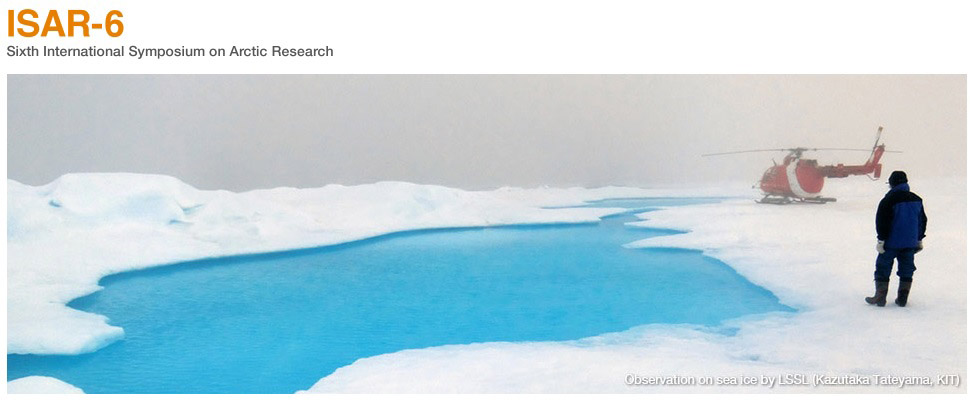
The organizers of ISAR-6 would like to remind you that the deadline (Oct. 7, 2019) of Call for Abstract for ISAR-6 is closing in.
- Travel Grants for Early Career Scientists (Closing on November 30, 2019)
- https://jcar.org/isar-6/
- .........
- .......
- .............
- ...........
-
“Gender in Polar Research: Gendered field work conditions, epistemologies and legacies”
A two-day workshop in the framework of Arctic Science Summit Week 2020,
Akureyri, Iceland, 29-30(TBC) March 2020
funded by IASC - the International Arctic Science Committee

Describe your contribution with an abstract of max 250 words and submit at the latest on the 1st of October 2019 to:
This email address is being protected from spambots. You need JavaScript enabled to view it. andThis email address is being protected from spambots. You need JavaScript enabled to view it.
We can fund a limited number of participants up to 800 euros each. Priority will be given to early-career researchers. Please, indicate your financial need in your message to us.
For more information see IASSA Working Group Gender in the Arctic
https://gender-arctic.jimdo.com/
Arctic Observing Summit 2020
The 5th biennial AOS will be held in 31 March-2 April 2020 in Akureyri, Iceland as part of Arctic Science Summit Week (ASSW) 2020. The overarching theme of the 2020 Summit is Observing for Action.

Deadline for submitting input: 18 October 2019
https://arcticobservingsummit.org/submission-form-white-papers-and-short-statements
International Symposium on Plastics in the Arctic and Sub-Arctic Region
Reykjavik, 21-23 April 2020

Call for Abstracts is now open and a direct link to the abstract submissions form is here. The deadline for abstract submissions is 1 December 2019.
Registration is now open and a direct link to the registration site is here. The deadline for an early bird registration is 30 September 2019.
SCAR2020 Open Science Conference
21 July - 11 August 2020, Hobart, Tasmania, Australia- ............
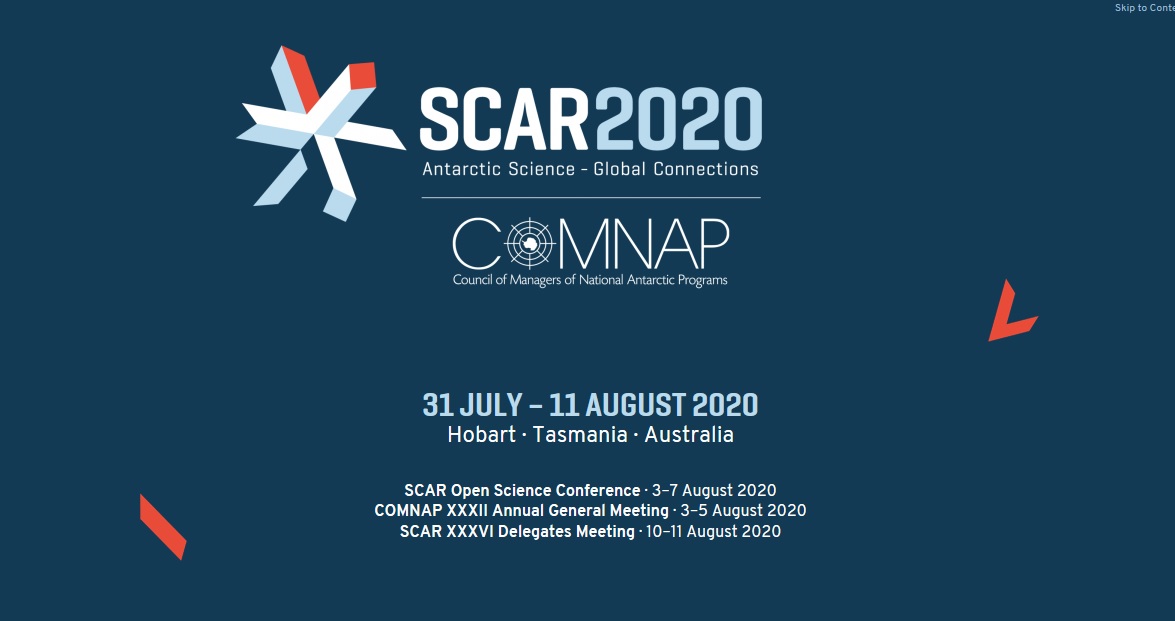
-
Dear Colleagues
Please find below an update on the SCAR2020 Open Science Conference, with a link to a draft list of sessions which you can comment on and suggest changes to. We had a terrific response to our request for session suggestions from the SC-HASS community and it would be great to have some input on this next stage. Feedback should go directly to the SCAR address below; the deadline is 28 June 2019.
https://www.scarcomnap2020.org/
Svalbard Science Conference 2019 - Svalbard in a pan-Arctic perspective
5–6 November 2019, Scandic Fornebu Oslo, Norway

The Norwegian archipelago of Svalbard, with a location in the high Arctic and easy accessibility, represents a unique platform for high quality international research and education.
The Svalbard Science Forum, The Research Council of Norway and The Norwegian Polar Institute in cooperation with The Ny-Ålesund Science Managers Committee (NySMAC) invite researchers, research managers and stakeholders to the second Svalbard Science conference. The conference will focus on Svalbard in a pan-Arctic setting, aspiring to enhance cooperation and quality within Svalbard research, build and strengthen interdisciplinary and international networks and consolidate Svalbard as an attractive platform for Arctic research.
Together with updates on the new strategies for research and education in Svalbard and inspirational talks from invited key notes, we invite participants to take an active role in the conference through presentations, poster sessions and group discussions. Registration and abstract submission will open in March 2019.
https://forskningsradet.pameldingssystem.no/svalbard-science-conference-2019
Third Polar Data Forum
18–22 November 2019, Helsinki, Finland

The Third Polar Data Forum will be hosted by the Finnish Meteorological Institute in Helsinki from November 18th to 22nd, 2019.
The call for abstracts has been extended from 16 August, 2019 to 6 September, 2019.
Abstracts can be submitted through the Forum website at https://polar-data-forum.org/Themes of interest include:
* Polar community and network building
* Data discovery and federated search
* All aspects of data interoperability (syntactical, structural, semantic, social)
* Standards and protocols to improve data access
* Analysis of user needs
* Enabling data reuse for multiple audiences
* Ethical utilization of data derived from Indigenous knowledge and community based monitoring
* Data management for polar social science and humanities
* Cloud computing and other advanced analytical methods and platforms (i.e. machine learning, AI)
* Sensor webs and observing systems
* Critical studies on polar data management (e.g. Science and Technology Studies)
* Recognition and attribution in data systems
* Data management for major projects (e.g. Southern Ocean Observing System, MOSAiC, Arctic Supersites etc.)
* Data policy
* Other themes related to polar data broadly defined (i.e. including information and knowledge)More information about the 3rd Polar Data Forum:https://polar-data-forum.org/
4th Polar Ecology Conference “Interactions between Ocean and Terrestrial Ecosystems”
12-15 February 2020, České Budějovice, Czech Republic

ISAR-6 / Sixth International Symposium on Arctic Research
第6回国際北極研究シンポジウム
2-6 March 2020, Tokyo, Japan

Arctic research: the decade past and the decade future
・ Understanding the Arctic change and its accelerating and cascading impacts.
・ How the Arctic research has contributed to the sustainable development.What's New
- May 7, 2019
- [Deadline extended] Call for Session ends on May 13, 2019 at 12:00 p.m.(JST).NEW
- January 17, 2019
- ISAR-6 1st Circular opened.
- ...........
-
“Gender in Polar Research: Gendered field work conditions, epistemologies and legacies”
A two-day workshop in the framework of
Arctic Science Summit Week 2020,
Akureyri, Iceland, 29-30(TBC) March 2020
funded by IASC - the International Arctic Science Committee

The IASC Social Sciences and Humanities Working Group (WG), together with IASC’s Cryosphere, Marine, and Terrestrial WGs, invites you to a unique cross-disciplinary workshop attempting to bring together the natural sciences, the social sciences and the humanities in order to discuss and reflect on the gendered nature of Polar research.
The workshop will combine three strands of debate that have thus far not been discussed systematically:
- Doing science in the 21st century in a way that departs from but also pays careful attention to the history of exploration and colonial endeavours as “heroic” and masculine activities – while a masculine image still seems to dominate the methodologies and practices of Arctic and Polar research.
- The still existing gender gap when it comes to female researchers in hard sciences, their career prospects, and their sometimes difficult working conditions as women in the field. Critiques of the gender gap and gendered research work have thus far neglected the diversity aspects of queer and gender minority (LGBTQI) researchers. They face particular challenges whíle working in a still largely heteronormative research environment as it is described for research stations, vessels or tundra/taiga camps.
- The gendered composition of researchers as actors and the gendered spaces of conducting research, including the field sites, have an important impact on research interests, research design, research ethics and epistemology. The gender bias affects the research subject and methodology, and Polar research can learn from and communicate with other fields of science about how to ensure a high standard of equality, sensitivity to issues of marginalization, and ethical production of science.
We invite participants of the ASSW 2020 from natural and social sciences to pop by at the workshop and to join the discussions and break-out groups. Participants will be engaged through alternative formats to gain a maximum of knowledge exchange as well as to map out the state of the art and ideas about where to go from there.
We invite abstracts for a great variety of contributions in conversation with the three themes outlined above: besides as a set of classic academic papers (15 min) and short inputs (5 min) (e.g. sharing experiences or introducing NGOs and movements).
In particular, the workshop facilitates discussions and break-out group work for examining pressing issues in the thematic fields based on individual, group and scholarly experience and activism. Audiovisual or artistic contributions are very welcome. Also join us for volunteering as an organiser of a break-out group.
Submission of proposal and request for funding
Describe your contribution with an abstract of max 250 words and submit at the latest on the 1st of October 2019 to:This email address is being protected from spambots. You need JavaScript enabled to view it. andThis email address is being protected from spambots. You need JavaScript enabled to view it.
We can fund a limited number of participants up to 800 euros each. Priority will be given to early-career researchers. Please, indicate your financial need in your message to us.
For more information see IASSA Working Group Gender in the Arctic
https://gender-arctic.jimdo.com/
Arctic Observing Summit 2020
The 5th biennial AOS will be held in 31 March-2 April 2020 in Akureyri, Iceland as part of Arctic Science Summit Week (ASSW) 2020. The overarching theme of the 2020 Summit is Observing for Action.

Call for Community Input
White Papers and Short Statements
Deadline for submitting input: 18 October 2019
The Executive Organizing Committee for the Arctic Observing Summit (AOS) 2020 is seeking community input in the form of white paper and short statements on the topics under discussion at the Summit.The 5th biennial AOS will be held in 31 March-2 April 2020 in Akureyri, Iceland as part of Arctic Science Summit Week (ASSW) 2020. The overarching theme of the 2020 Summit is Observing for Action.
Community input and perspectives are invited in the form of white papers and short statements for AOS 2020. Community input can serve to highlight important data, management, or logistical needs or gaps, explore emerging opportunities, address a current challenge, present new initiatives, or technology that can contribute to Arctic observing (including global programs), or review on-going observing activities or issues that are relevant for the development, application, operation, or support of a sustained Arctic observing network. Community input (white papers/short statements) should link to the themes identified for AOS 2020. However, other input on important and relevant topics related to AOS are welcome also under the category of “OTHER: Other high-priority issues for Arctic observing.”
These statements will be used to help guide discussions during the AOS Thematic Working Group sessions. Authors may be invited to give presentations during AOS 2020, and a synthesis of white paper issues will inform recommendations and action items adopted at the Summit and conveyed to Arctic Council Working Groups and other local, national, and international bodies overseeing, supporting, or carrying out sustained Arctic observations.
Based on recommendations and priorities identified during the 2018 Summit, AOS 2020 will be structured along the following sub-themes:
- Sub-Theme 1: Design, Optimization, and Implementation of the Observing System;
- Sub-Theme 2: Observing in Support of Adaptation and Mitigation;
- Sub-Theme 3: Observing in Support of Indigenous Food Security and Related Needs;
- Sub-Theme 4: Data Interoperability and Federated Search;
- Sub-Theme 5: Arctic Observations in the Context of Global Observing Initiatives; and
- Sub-Theme 6: Arctic Observing in Support of Global Actions.
For more information and to submit a white paper or short statement,
go to the submission webpage.
For questions, contact:
Ravi Darwin Sankar |This email address is being protected from spambots. You need JavaScript enabled to view it.
Maribeth Murray |This email address is being protected from spambots. You need JavaScript enabled to view it.
International Symposium on Plastics in the Arctic and Sub-Arctic Region
Reykjavik, 21-23 April 2020

Registration and call for abstracts
Call for Abstracts is now open and a direct link to the abstract submissions form is here. The deadline for abstract submissions is 1 December 2019.
Registration is now open and a direct link to the registration site is here. The deadline for an early bird registration is 30 September 2019.
Iceland holds the Chairmanship of the Arctic Council from May 2019 to May 2021 and will during its chairmanship put emphasis on discussing and promoting ways and means to reduce the impact of plastics on the Arctic ocean. This emphasis will be reflected in the work of the Arctic Council during the period where Iceland intends to stage an international symposium on plastics in the Arctic and Sub-Arctic region in Reykjavik from 21-23 April 2020.
The symposium will be co-hosted by the Government of Iceland and the Nordic Council of Ministers in collaboration with the International Council for the Exploration of the Sea (ICES), UNEP, OSPAR, IOC UNESCO, IASC, Harvard Kennedy School and PAME, a working group of the Arctic Council. The symposium is expected to provide a most relevant update on plastics in the region, its impact on the marine environment and possible solutions.
The symposium program outline, registration and call for abstracts can be found on the symposium website: www.arcticplastics2020.is
Feel free to share with your respective communities!
SCAR2020 Open Science Conference
21 July - 11 August 2020, Hobart, Tasmania, Australia- ............

-
Dear Colleagues
Please find below an update on the SCAR2020 Open Science Conference, with a link to a draft list of sessions which you can comment on and suggest changes to. We had a terrific response to our request for session suggestions from the SC-HASS community and it would be great to have some input on this next stage. Feedback should go directly to the SCAR address below; the deadline is 28 June 2019.
Best wishes,
The SC-HASS Team
SCAR OSC 2020 UpdatePreparations are well underway for our 2020 SCAR meetings and Open Science Conference to be held in Hobart, Australia in July-August 2020. The COMNAP Annual General Meeting will run concurrently with SCAR and the organisers are working to schedule events to encourage participation across the two groups. The OSC theme ‘Antarctic Science: Global Connections’ highlights the scientific connections between Antarctica and the global system and collaboration in our Antarctic science community.
The Local Organising Committee are working closely with the SCAR and COMNAP Secretariats on meeting preparations including an excellent program of conference and side events. Planning for SCAR COMNAP 2020 includes efforts to minimise waste, encourage sustainable resource management and to foster participation inclusion and diversity.
The first pre-conference circular
<https://antarctica-ssag.us11.list-manage.com/track/click?u=24d8f79b62d5a4c84fb7f33c0&id=79cf711888&e=d426a47058>
is
now available and outlines some key pieces of information about SCAR COMNAP
2020. This includes the conference structure and indicative dates for
abstract submission and registration.The International Science Organising Committee has also developed a draft
list of sessions
<https://antarctica-ssag.us11.list-manage.com/track/click?u=24d8f79b62d5a4c84fb7f33c0&id=814e47e128&e=d426a47058>
based
on input from the SCAR community – it is available for comment on the SCAR
COMNAP 2020 website. Comments, suggested changes, proposals for additional
sessions and suggestions for sessions to be merged together should be made
toThis email address is being protected from spambots. You need JavaScript enabled to view it.
<This email address is being protected from spambots. You need JavaScript enabled to view it. ; by 28
June 2019.For more information, please check the SCAR COMNAP 2020 website
scarcomnap2020.org
<https://antarctica-ssag.us11.list-manage.com/track/click?u=24d8f79b62d5a4c84fb7f33c0&id=b519a1b639&e=d426a47058>
or
contact the SCAR COMNAP 2020 Project Manager, Rhonda Bartley at the
Australian Antarctic Division – email:This email address is being protected from spambots. You need JavaScript enabled to view it. We look forward to seeing you all in Hobart next year!
Kind regards,
The SCAR Secretariat
<https://antarctica-ssag.us11.list-manage.com/track/click?u=24d8f79b62d5a4c84fb7f33c0&id=01e0ab53c1&e=d426a47058>
The first circular for the OSC is available now.
<https://antarctica-ssag.us11.list-manage.com/track/click?u=24d8f79b62d5a4c84fb7f33c0&id=ad608993ec&e=d426a47058>
<https://antarctica-ssag.us11.list-manage.com/track/click?u=24d8f79b62d5a4c84fb7f33c0&id=763c6e7646&e=d426a47058>
<https://antarctica-ssag.us11.list-manage.com/track/click?u=24d8f79b62d5a4c84fb7f33c0&id=cf318d1441&e=d426a47058><https://antarctica-ssag.us11.list-manage.com/track/click?u=24d8f79b62d5a4c84fb7f33c0&id=92a24f66e0&e=d426a47058>
<https://antarctica-ssag.us11.list-manage.com/track/click?u=24d8f79b62d5a4c84fb7f33c0&id=03d28524d0&e=d426a47058>
<

